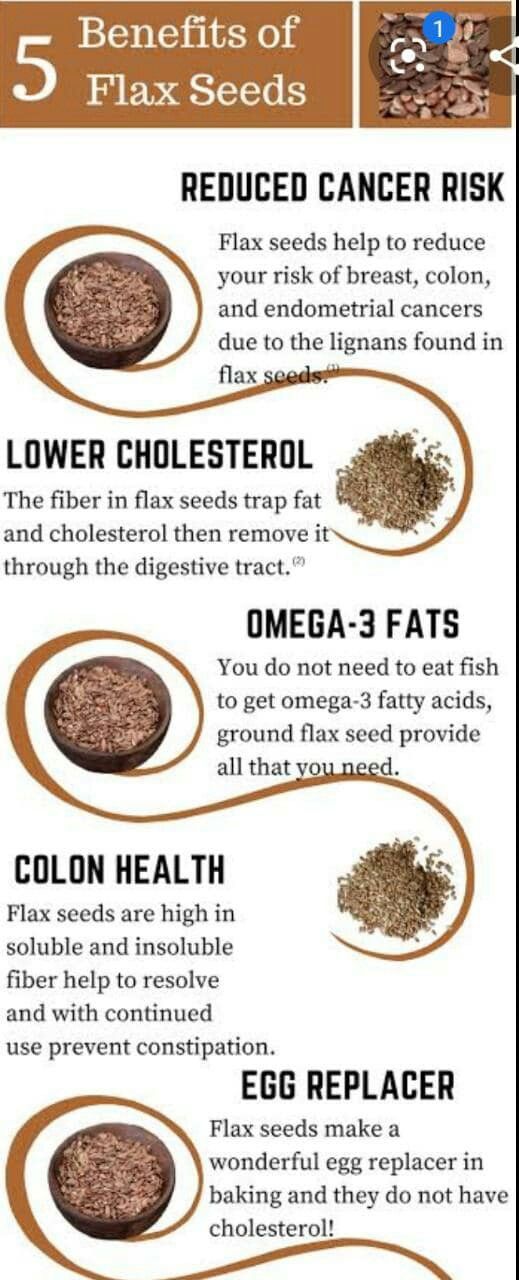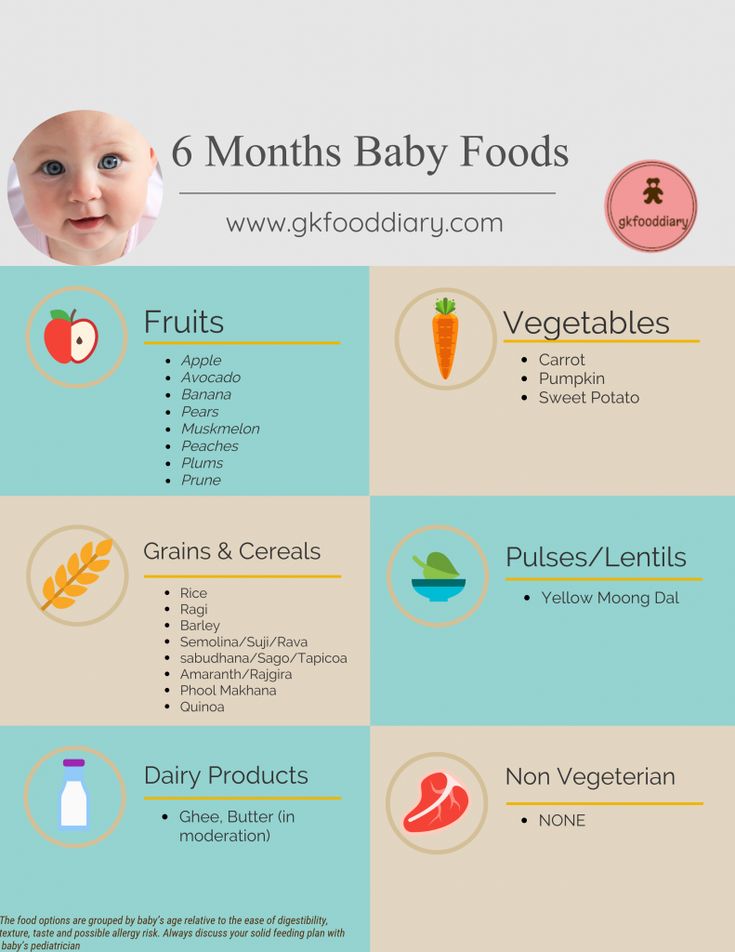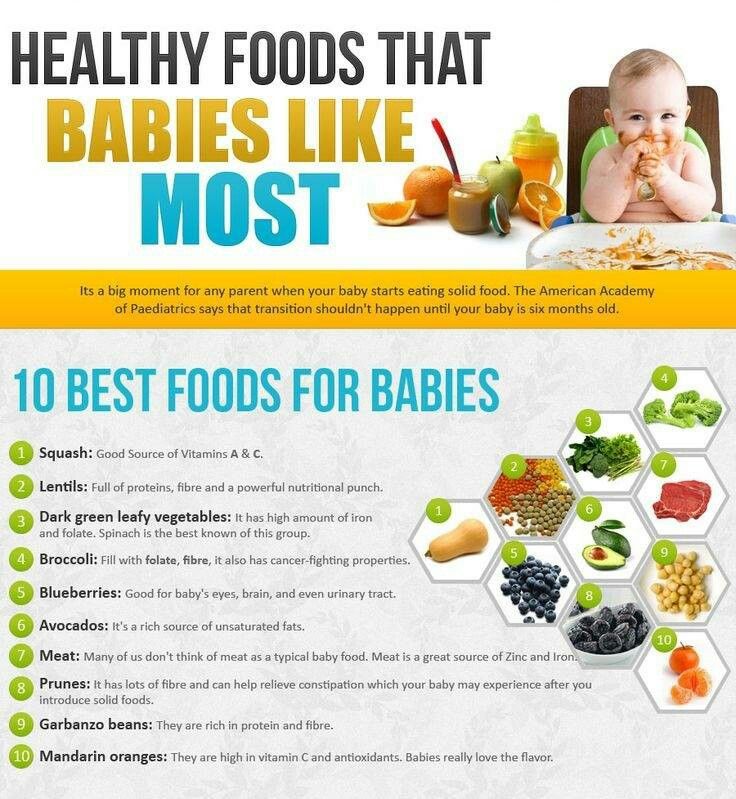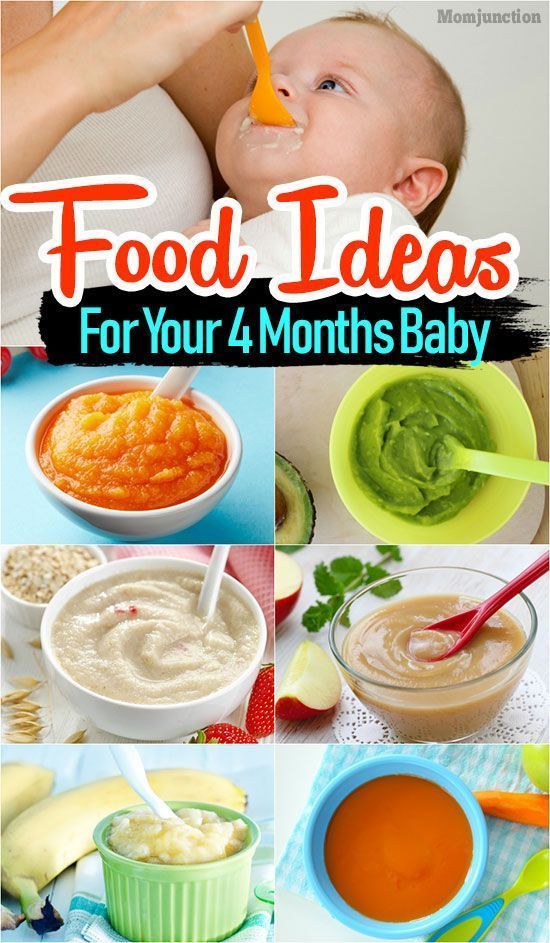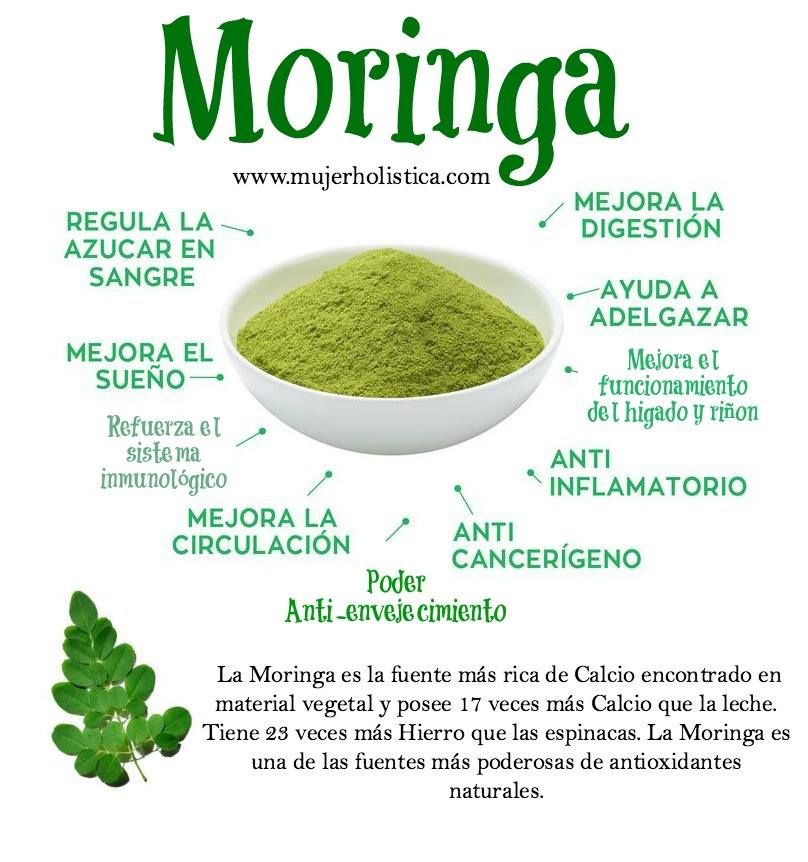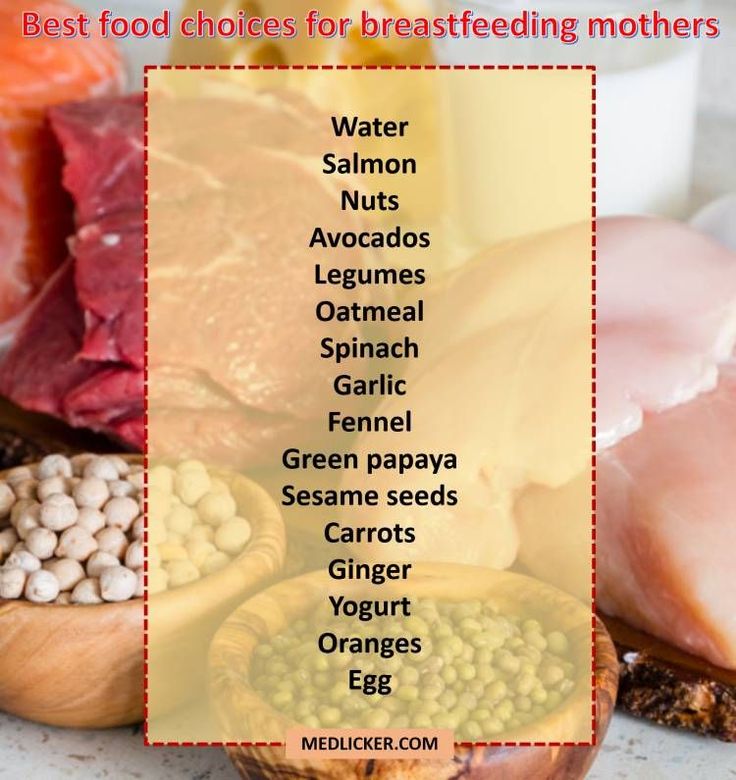Why is my baby fussy after bottle feeding
Baby Cries After Feeding: What Should I Do?
Medically reviewed by Karen Gill, M.D. — By Chaunie Brusie on October 3, 2018
My daughter, the “crier”
My second daughter was what my oldest fondly referred to as a “crier.” Or, in other words, she cried. A lot. The crying with my baby girl seemed to intensify after every single feeding and particularly at night.
It was those hellish hours between darkness and dawn when my husband and I would take turns walking around the house with her in our arms, praying and, mostly in my case, sobbing because we couldn’t console our baby.
I didn’t know it then in my sleep-deprived state, but my daughter’s crying after feedings wasn’t that uncommon. In combination with her frequent spitting up, it was pretty much a classic textbook case of colic.
Colic
Colic, in technical terms, simply means a “crying, fussy baby that doctors can’t figure out.”
OK, so that’s not really the definition, but in essence, that’s what it boils down to. The British Medical Journal (BMJ) lists one criterion for colic: A baby that cries for at least three hours a day, three or more days a week, and is under 3 months old. Check, check, and check.
There isn’t one single known cause of colic. Even the actual clinical incidence of colic, estimated by BMJ to be around 20 percent of all babies, can be tricky.
Acid reflux
One of those causes of crying after feeding and spitting up in babies is actually acid reflux. This condition is known as gastroesophageal reflux disease (GERD) if it also causes significant symptoms such as poor weight gain.
When my “crier” daughter was 5, she frequently complained of her stomach hurting and as a result, had to undergo a series of testing with a gastroenterologist, a doctor that specializes in the GI system.
At our first appointment, the very first question he asked me was if she had colic as a baby and if she spit up a lot, to both of which I practically shouted, “Yes! How did you know?!”
He explained that acid reflux or GERD can manifest as symptoms similar to colic in babies, stomach pain in school-aged children, and later as actual heartburn pain in adolescents.
While many infants spit up, fewer have actual GERD, which can be caused by an underdeveloped flap between the esophagus and stomach or a higher-than-normal production of stomach acid.
In most cases, a diagnosis of infant reflux is simply based on your baby’s symptoms. If your doctor suspects a severe case however, there are several different tests that actually diagnose infant reflux.
Testing can involve taking a biopsy of your baby’s intestine or using a special type of X-ray to visualize any affected areas of obstruction.
Food sensitivities and allergies
Some babies, especially breastfed babies, may be allergic to certain food particles that their mothers are eating.
The Academy of Breastfeeding Medicine notes that the most common offender is cow’s milk protein in the mother’s milk, but even a true allergy is very rare. Only about 0.5 to 1 percent of exclusively breastfed babies are thought to be allergic to cow’s milk protein.
The other most common culprits, according to the ABM, are egg, corn, and soy, in that order.
If your baby is displaying symptoms of extreme irritability after feedings and has other symptoms, such as bloody stools (poop), you should speak with your healthcare provider about getting them tested for allergies.
Aside from a true allergy, there’s also been some evidence that following a low allergen diet while breastfeeding (essentially avoiding those top allergy foods, such as dairy, eggs, and corn) may be beneficial for infants with colic.
Strict elimination diets can have their own risks, so speak with your doctor before significantly changing your diet.
In our situation, I found that dairy, caffeine, and certain seeded fruit exacerbated my daughter’s crying and spitting up. By eliminating those foods and substances from my diet, I was able to help lessen her discomfort.
If you have a baby with colic, you might want to try anything at all to help ease your baby’s crying. If you’re curious to see if your diet has any effect, you can start by logging your food in a food journal and writing down your baby’s reactions after each meal.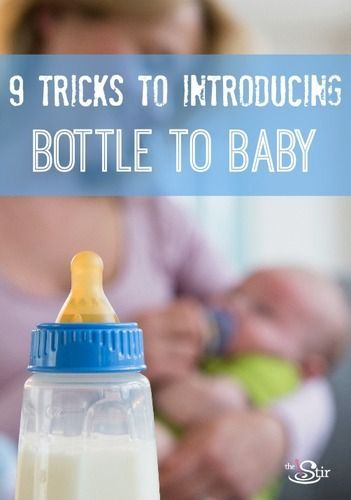
Next, you can eliminate one food at a time and see if reducing your intake of certain foods seems to make a difference in your baby’s behavior. If you hit on one you feel helps your baby to cry less, this does not mean they will not be able to eat that food in the future.
Just be sure to keep in mind that a true allergy is rare. Also, be sure to monitor for any additional symptoms, such as blood in your baby’s poop.
Gas
If your baby is crying a lot after every feeding, it may simply be a buildup of air swallowed while eating. It’s thought that bottle-fed babes in particular may be more prone to swallowing a lot of air during a feeding. This can trap gas in their stomachs and be uncomfortable.
In general, breastfed babies swallow less air while eating simply due to the way they eat. But every baby is different and even breastfed babies may need to be burped after a feeding.
Trying keeping your baby upright after a feeding and burping gently from the bottom of their back and up through the shoulders to work the gas bubbles up and out.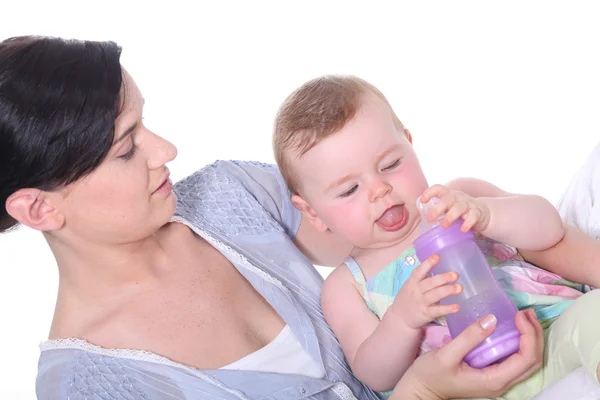 Also check out this illustrated guide to burping a sleeping baby.
Also check out this illustrated guide to burping a sleeping baby.
Formula
If your baby is formula-fed, swapping out the formula you use may be a simple solution to a crying baby after feedings. Every formula is a little bit different and certain brands make formulas for more sensitive baby tummies.
If you decide to try this, talk to your baby’s pediatrician about whether an elemental formula would be a good choice to try for a week. If you try one different brand and you see no change in your baby’s fussiness, continuing to try different brands is unlikely to help.
Takeaway
Colic, along with a few other common conditions, might be the culprit if you too have a “crier” on your hands.
If your baby doesn’t find relief after dietary changes or additional burping, then make an appointment to see their doctor.
Share on Pinterest
Chaunie Brusie, BSN, is a registered nurse with experience in labor and delivery, critical care, and long-term care nursing. She lives in Michigan with her husband and four young children, and is the author of the book “Tiny Blue Lines.”
She lives in Michigan with her husband and four young children, and is the author of the book “Tiny Blue Lines.”
Last medically reviewed on October 3, 2018
- Parenthood
- Baby
- 06 Months
How we reviewed this article:
Healthline has strict sourcing guidelines and relies on peer-reviewed studies, academic research institutions, and medical associations. We avoid using tertiary references. You can learn more about how we ensure our content is accurate and current by reading our editorial policy.
- ABM clinical protocol #24: Allergic proctocolitis in the exclusively breastfed infant. (2011). DOI:
10.1089/bfm.2011.9977 - Harrel MC, et al. (2015). Is there a correlation between maternal diet in breastfeeding mothers and infantile colic? DOI:
10.1097/01.EBP.0000541032.94135.ca - Mayo Clinic Staff. (2018). Infant reflux.
mayoclinic.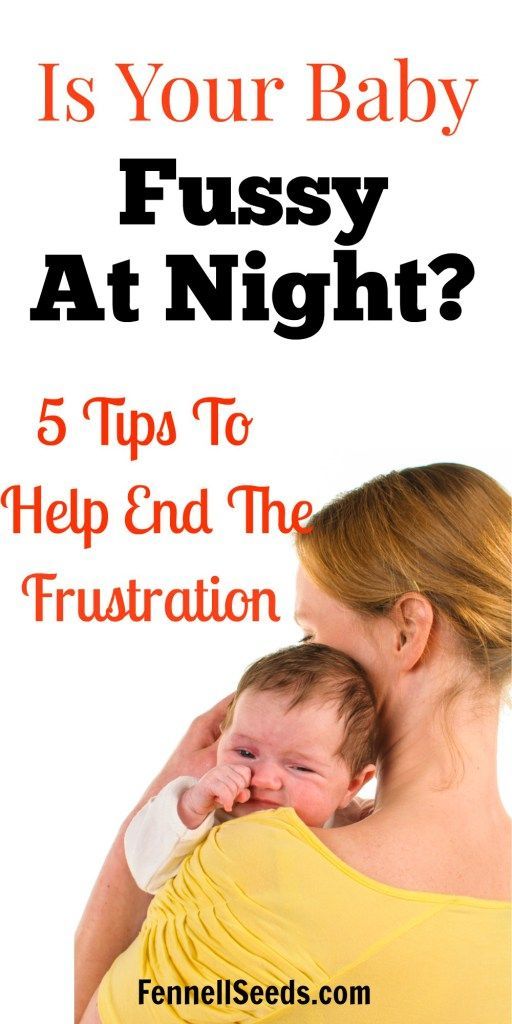 org/diseases-conditions/infant-acid-reflux/diagnosis-treatment/drc-20351412
org/diseases-conditions/infant-acid-reflux/diagnosis-treatment/drc-20351412 - Rosen LD, et al. (2007). Complementary, holistic, and integrative medicine.
pedsinreview.aappublications.org/content/28/10/381 - Saavedra MA, et al. (2003). Infantile colic incidence and associated risk factors: A cohort study. .
ncbi.nlm.nih.gov/pubmed/14502331 - Sung V, et al. (2014). Treating infant colic with the probiotic Lactobacillus reuteri: Double blind, placebo controlled randomised trial. DOI:
10.1136/bmj.g2107 - Symptoms & causes of GER and GERD in infants. (2015).
niddk.nih.gov/health-information/digestive-diseases/acid-reflux-ger-gerd-infants/symptoms-causes
Our experts continually monitor the health and wellness space, and we update our articles when new information becomes available.
Current Version
Oct 3, 2018
Written By
Chaunie Brusie
Edited By
Nizam Khan (TechSpace)
Medically Reviewed By
Karen Richardson Gill, MD
Share this article
Baby Crying After Feeding: What Should You Do?
Did you imagine watching your new bundle of joy gently slip off to sleep in your arms while eating? Is your reality a screaming baby who can’t seem to get comfortable after feedings?
You’re not alone; it happens more frequently than you think.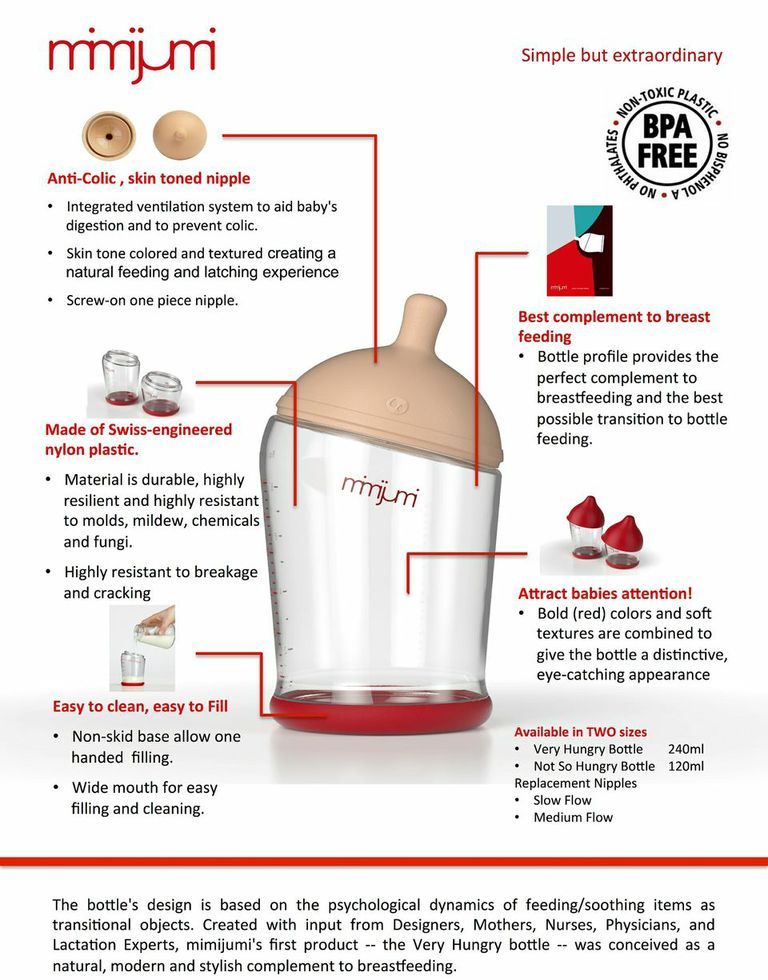 As moms, we’ve dealt with this ourselves. And as medical practitioners, we’ve seen plenty of parents with the same issue.
As moms, we’ve dealt with this ourselves. And as medical practitioners, we’ve seen plenty of parents with the same issue.
There are several reasons your baby might be feeling discomfort after feeding. We’ll look at some of the main causes of why your baby cries after feeding, and we’ll share some proven techniques you can use to make your baby more comfortable and your evenings calmer.
Why Do Babies Cry After Feeding?
If you’re dealing with an inconsolable child after feedings, you may have noticed some of the following symptoms of abdominal discomfort:
- Crying: Babies seem to experience more discomfort during the evening hours. If you’ve heard the cry before, you know it’s unmistakably a cry of pain. An urgency and intensity suggest it’s more than just complaining.
- Pulling up or extending their legs: Is your baby bringing their knees up to their chest or rigidly extending their legs? They are likely experiencing abdominal pain.
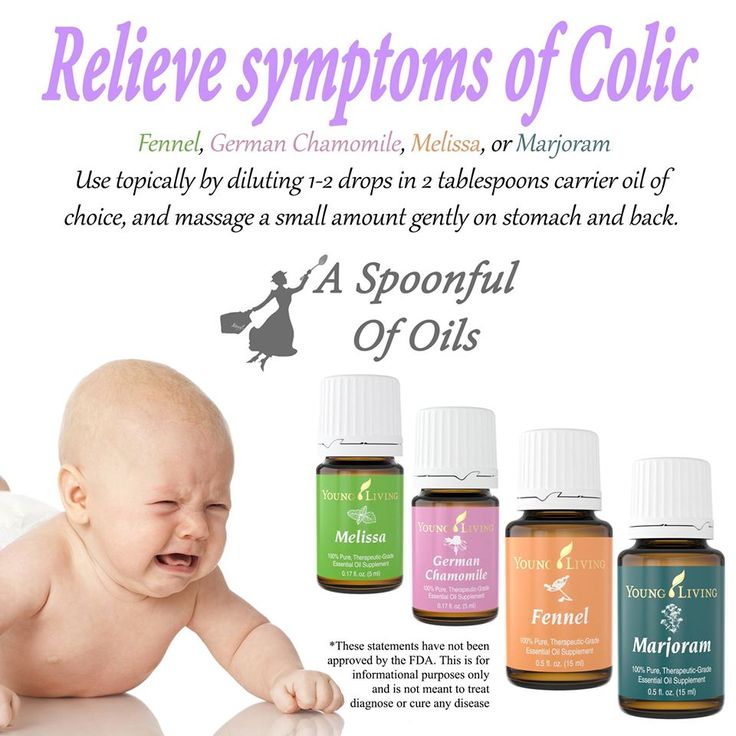
- Distended bellies: Most post-feeding discomfort can be linked to excessive gas in the baby’s system. If it’s trapped in their digestive system, it may lead to a hardened or swollen tummy. Their crying may be exacerbating the discomfort they’re already experiencing.
There are many possible causes of your baby’s discomfort. While this is not an exhaustive list, we’ll talk about some of the main sources of digestive discomfort in young babies.
1. Colic
Perhaps you’ve heard a baby referred to as colicky. Your pediatrician may have even given you the diagnosis. This designation came about after a pediatrician’s study on extremely fussy children and has been around for decades.
Having a colicky baby basically means you have a baby who cries — a lot. You can expect a baby with colic to cry at least three hours a day for at least three days a week (1). Using this definition, nearly a quarter of all infants will experience colic.
The good news is that 50% of babies with colic outgrow the condition by the time they’re three months old. By the time your baby reaches nine months old, there’s a 90% chance they’ll have outgrown the colic.
There’s usually no discernible cause for colic. But it’s clear your baby is uncomfortable. This discomfort is typically linked to the digestive system and follows feedings.
You may need to hold your colicky baby more often and provide lots of comfort. While it can be nerve-wracking and frustrating, having a colicky baby doesn’t mean your baby is unhealthy.
2. Acid Reflux
Also known as gastroesophageal reflux disease (GERD), acid reflux is a common cause of post-feeding discomfort. It can be upsetting to hear your baby is experiencing reflux. But reflux isn’t uncommon; it affects up to 50% of babies during the first few months of life.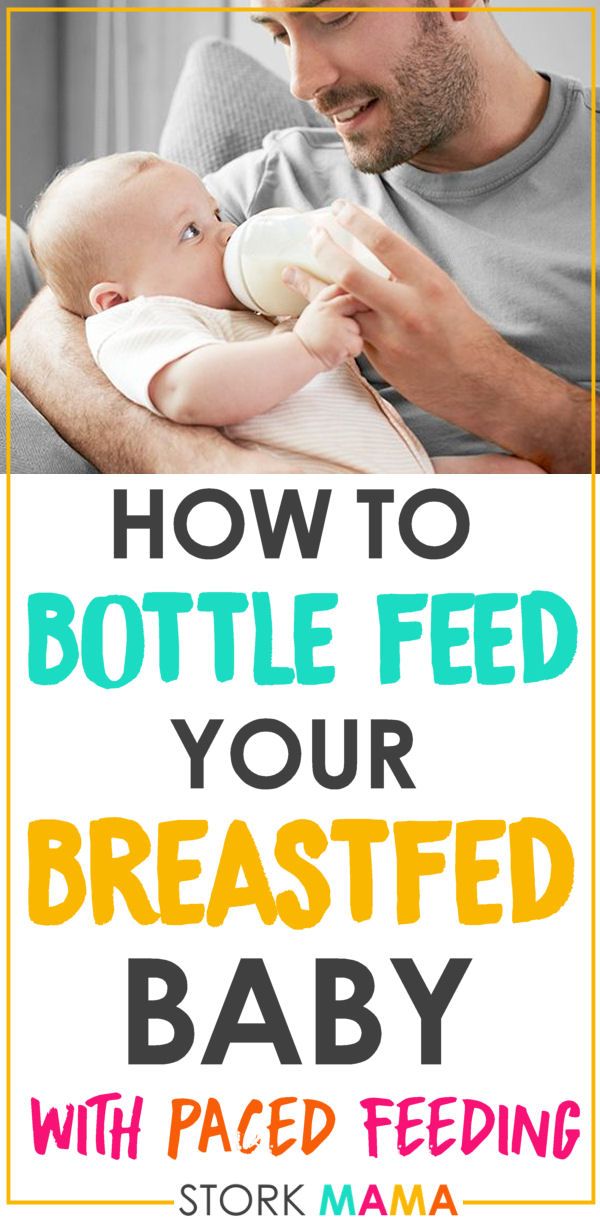
If your child is suffering from GERD, there may be additional accompanying symptoms, like difficulty gaining or maintaining weight. Children with GERD frequently spit up and may even experience aggressive vomiting (2).
When your child is experiencing acid reflux, it’s usually because the gastrointestinal system is not working properly. If the difficulty your baby is experiencing is related to an immature digestive system, a child may outgrow GERD. When this happens — as it does for about 95% of children — it usually does so by their first birthday.
There’s also a remote possibility your baby will not outgrow GERD. If this is the case, your doctor can help you create an ongoing treatment plan to support your child’s needs. If you suspect your child has GERD, you should make an appointment with a pediatric gastroenterologist to discuss your concerns.
3.
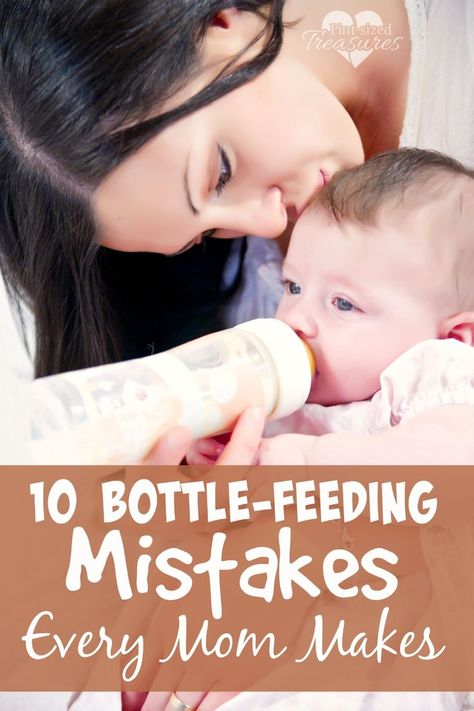 Gas
GasAnother common reason babies cry after feeding has to do with gas. Babies’ bodies are still developing their basic skills. A baby who swallows too much air during feedings may not be able to process the extra gas easily.
This leads to pressure and distension and can cause crying and extreme discomfort after meals. It may not be possible to keep your baby from taking in too much air during feedings. However, there are some things you can do to keep air intake to a minimum:
- Frequently burp your baby: Burping can help remove some of the excess air from your baby’s system and leave them feeling more comfortable. To successfully burp your baby, hold them upright, supporting their head well, and pat or rub their back. Some babies seem to burp a lot, while others might have one good burp per feeding.
- Feed in a more upright position: Keep your baby upright for at least 20 to 30 minutes after meals to reduce gas discomfort. If your little one is uncomfortable during sleep, you can also try an inclined mattress, following safe sleep guidelines (3).

- Cycle your baby’s legs: If your baby is visibly uncomfortable, you can lie them on their back and cycle their legs as though they’re riding a bike. This can help push the air through their system and provide them with some relief.
- Try to catch the crying early: It can be tempting to let your baby work through the crying and get to sleep. If it’s likely your child won’t stop, intercept the crying as soon as possible. Crying usually involves gulping air, which will lead to more gas — and more crying.
- Don’t put your baby to sleep directly after a large meal: We all know it’s best for your baby to sleep on their back. But putting a baby down on their back with a full stomach can be a recipe for discomfort. Hold your little one for 20 minutes post-feeding, even if they’re already asleep.
These approaches are great whether you’re nursing or formula feeding. However, there are some specific things you’ll want to look out for, depending on how you feed.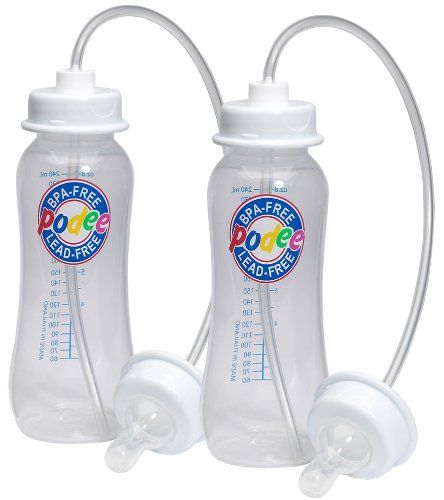
Nursing
- Pay attention to how you eat: What you eat directly impacts your breast milk. Certain foods, including broccoli, beans, and onions, are notoriously difficult for your baby to break down. If you notice gas is especially bad for your baby after you eat a particular type of food, you can limit it in your diet.
- Food sensitivity: Something in your diet may be making your baby fussy. The most common culprits are dairy and caffeine. Usually, there are additional symptoms. Keeping a food journal may help you pinpoint the offending item so you can eliminate it from your diet.
- Nurse your baby in positions that keep their head above their stomach: This will help limit the amount of air intake and encourage digestion.
- Get rid of the excess gas: Plan on burping your baby before switching sides and after feeding.
Bottle Feeding
- Pay attention to the bottle nipple you’re using: If your bottle nipple releases fluid more quickly than your baby can comfortably eat, they will guzzle their meal.
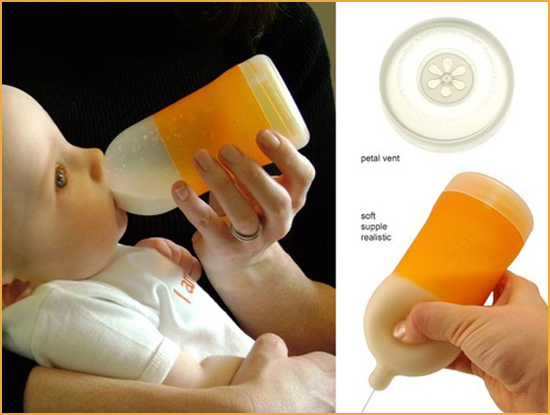 This leads to an increase in air intake and plenty of gas. Using a slow-flow nipple can help avoid this problem.
This leads to an increase in air intake and plenty of gas. Using a slow-flow nipple can help avoid this problem. - Position your bottle properly: Make sure your bottle is tilted enough to allow the milk to cover the nipple completely. This will help prevent your baby from sucking in the air that’s in the bottle along with their meal.
- Force out the extra air: Expect to burp your baby after every ounce of milk or formula is consumed.
Gas can be highly uncomfortable for your little one. Following these tips will help you mitigate gas and discomfort for your baby.
4. Food Sensitivities
It’s possible that some of your child’s crying after eating is related to an intolerance or allergy.
Everything you consume is passed on to your child in your milk. Some foods — like dairy and eggs — are frequently associated with food sensitivities (4).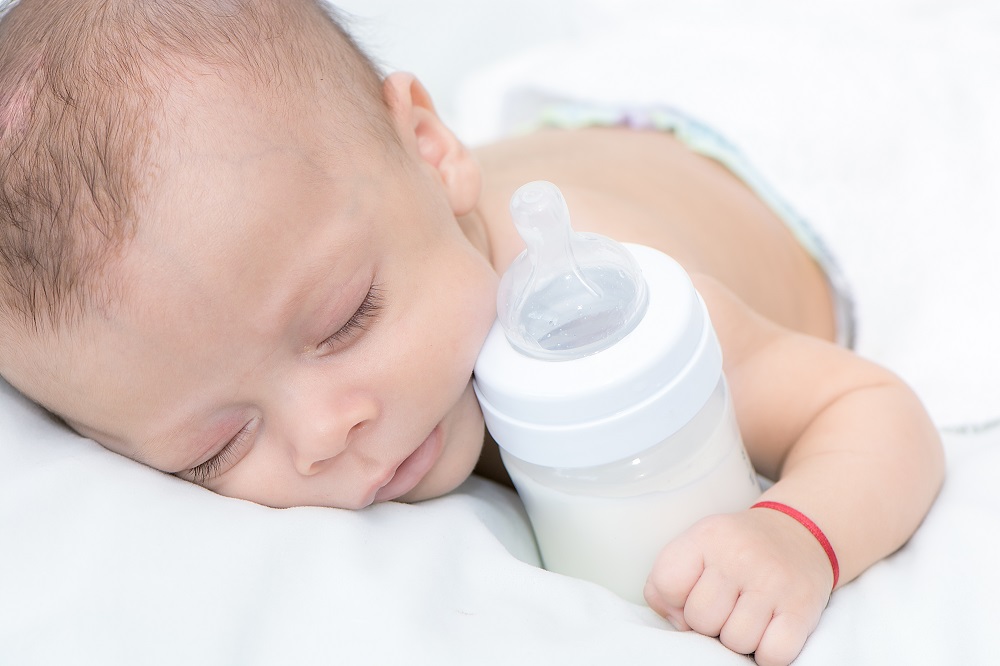
If you’re nursing, the best way to determine what’s agitating your child is by charting your food intake. Keep a food journal; you may be surprised at where correlations begin to appear.
Early on, my youngest was inconsolable after the last meal of the day — just when the time came to settle into sleep.
The common link to the discomfort? Spicy food and cheese during my dinner. I cut back on those, and my baby was happier for it.
We were fortunate our baby was only intolerant of these foods and didn’t have a true allergy. Sometimes a young system has difficulty handling certain foods. If your child has a true allergy, you’ll notice more symptoms than abdominal distress.
Be on the lookout for hives, skin rashes, vomiting, diarrhea, difficulty breathing, and any face or tongue swelling (5). If you suspect your child has an allergy, you should consult your pediatrician immediately. And if your little one is struggling with breathing after eating, call 911.
When starting solids, always introduce one new food at a time to your little one to determine what might have caused the response.
Formula feeding your baby? If you notice signs of a food allergy before introducing solid foods, your baby may be allergic to the formula (most commonly the cow’s milk protein). If you think this might be the case, work closely with your pediatrician to determine a suitable alternative formula.
Other Reasons For Crying After Eating
Many causes of post-feeding crying come back to the digestive process. They aren’t the only reasons, though. Some other things may cause your baby to cry.
5. Teething
Most babies will begin teething between 4 and 6 months of age. This doesn’t guarantee the teeth will show up shortly afterward, though. Some babies could go through several months of teething before the teeth break through the gums.
Unfortunately, your child will likely experience inflammation and extreme discomfort in the mouth and gums during this time. This can make even usually benign experiences, like nursing or bottle-feeding, incredibly painful.
If your baby is experiencing teething-related pain, you can help by numbing their gums with cool water before feeding. Just dip your thumb in water and rub directly onto the gums (6). Or let them chew on a washcloth that has been wet and then slightly frozen.
Other pain management approaches can include numbing oral medications and anti-inflammatories (though you’ll want to ask your baby’s doctor before using these). You’ll also want to provide plenty of opportunities for your baby to practice gnawing on things. This can help relieve the pressure, encouraging teeth to break through a little more quickly.
6. Thrush
Babies can experience an overgrowth of yeast in their mouths (7). While Candida, a parasitic fungus, is normally present in your body and in your baby’s mouth, excess yeast can be a problem.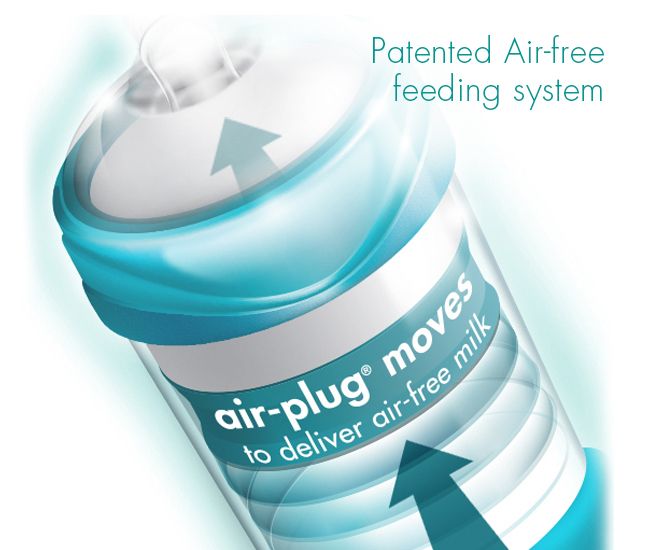 It’s extremely uncomfortable and may impact your baby’s ability to eat properly.
It’s extremely uncomfortable and may impact your baby’s ability to eat properly.
Excess amounts of yeast frequently happen after a course of antibiotics. Antibiotics will kill off the bad bacteria, but they don’t discriminate. This means they may also kill off good bacteria, leaving an imbalance that can lead to thrush.
Thrush is usually a visible condition. If you suspect your baby has thrush, look inside their mouth. If thrush is present, you’ll see filmy white patches that may look like milk. If the patch doesn’t come away with a swipe from your finger, you’re looking at thrush.
If your baby has thrush, make an appointment with your pediatrician. A simple course of prescription antifungal medication will help clean up the condition.
Yeast is quite persistent. If you’re dealing with thrush, plan on sterilizing every plastic nipple or pacifier you own to prevent recontamination. Nursing? You’ll need to be treated for thrush as well — or you will simply pass the infection back and forth between you and your baby.
Feedback: Was This Article Helpful?
Thank You For Your Feedback!
Thank You For Your Feedback!
What Did You Like?
What Went Wrong?
Baby won't take a bottle | Philips Avent
search support iconSearch Keywords
Home ›› What to do when your baby refuses a bottle
↑ top
any problems. If your breastfed baby refuses a bottle, don't worry. This is a common occurrence in many babies who are used to breastfeeding. Obviously, this can create certain difficulties for moms, especially if you need to return to work in the near future. nine0003
3 Philips Avent products to help you bottle feed:
So why is your baby refusing to bottle and crying? There are many ways to quickly and easily teach a breastfed baby to a bottle. Here are important tips on what to do when your baby refuses a bottle.
Is the baby refusing the bottle? Take a step back
If your baby cries while bottle feeding, the first thing to do is to start over and rethink your feeding approach and technique.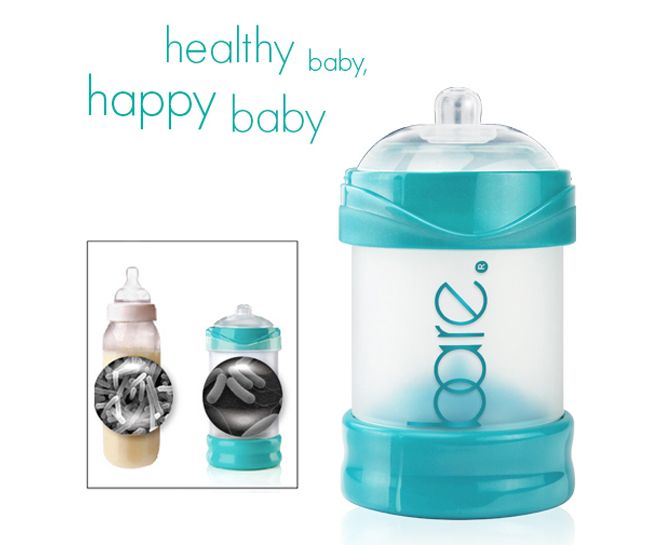 Try the following steps when bottle feeding your baby: [1]
Try the following steps when bottle feeding your baby: [1]
- Lift and tilt your baby's head forward. Before inserting the pacifier into the baby's mouth, make sure that the baby's head is raised and tilted over his body to avoid choking: so that the baby does not choke and have the opportunity to burp during bottle feeding.
- Insert the pacifier. Bring the pacifier to the baby's lips and gently guide it into the baby's mouth. In no case do not try to press the nipple on the baby's lips and try to push it into his mouth. After touching the pacifier to the baby's lips, wait for the baby to open his mouth and take the pacifier. nine0036
- Hold the bottle at an angle. Tilt the bottle at an angle so that the nipple is only half full. So the child can eat at his own pace.
- Let the baby burp during and after feeding. It can be useful for a child to burp not only after feeding, but also approximately in the middle of the process. This will help reduce gas or tummy discomfort that your baby may experience from swallowing too much air.
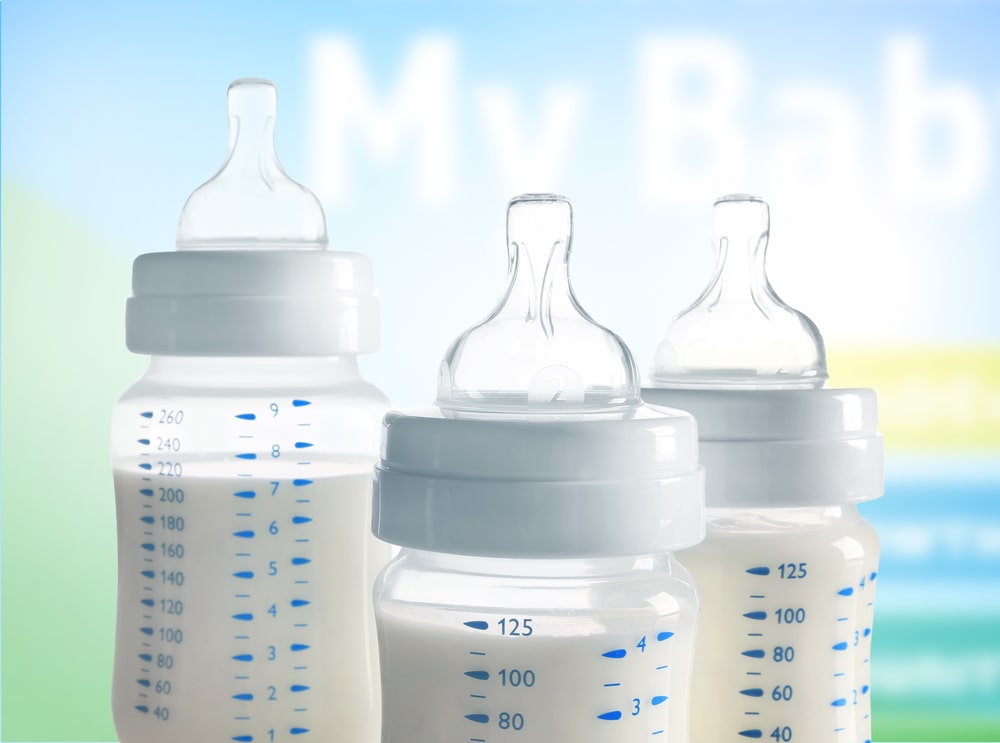
- Stop in time, do not overfeed the baby. If the baby begins to turn his head away from the bottle or closes his mouth, then he is full and you need to stop feeding.
- Perhaps the flow of milk from the nipple to the baby is weak or, on the contrary, too fast, so he is naughty and refuses the bottle. Try changing the nipple to a nipple with a different flow.
Other tips if your baby refuses the bottle
If you've followed the steps above and your baby still refuses the bottle, don't worry. There are other ways to help bottle feed your baby. Here are some simple tricks you can add to your bottle feeding process. nine0029 [2]
1. Remind your child about mom.
Sometimes a child can be fed by someone other than his mother - dad, grandmother or, for example, a nanny. If your baby fusses while bottle feeding, try wrapping the bottle in something that smells like mommy, like a piece of clothing or some fabric.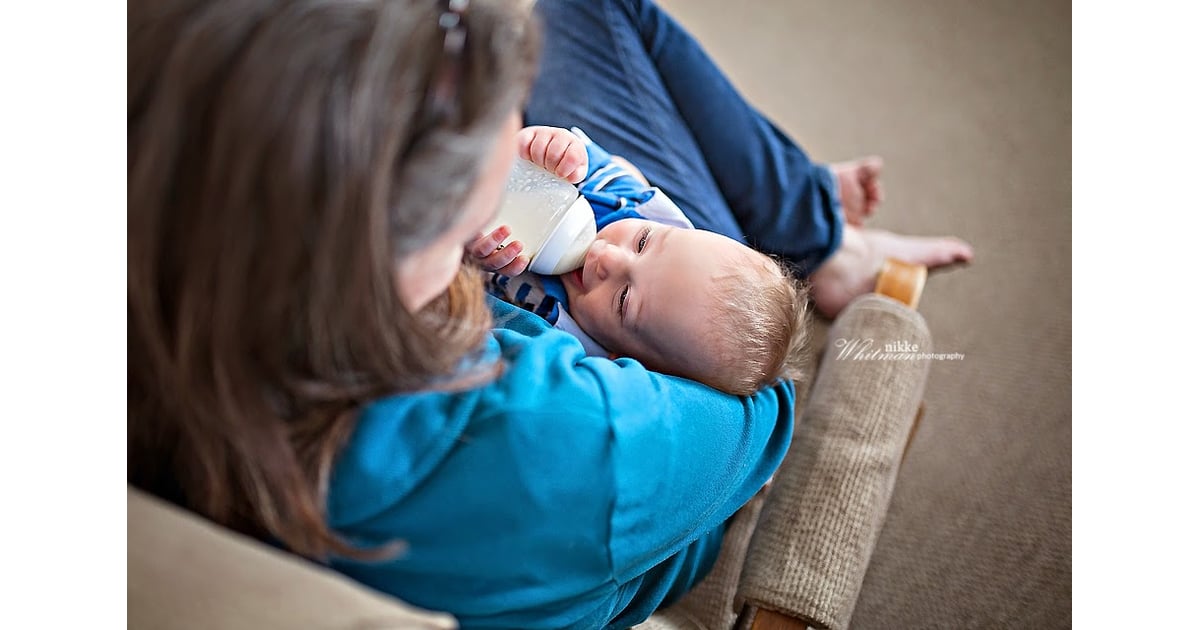 This will make it easier to feed the baby when the mother is not around.
This will make it easier to feed the baby when the mother is not around.
2. Try to maintain skin contact while bottle feeding. nine0006
Some babies need contact with their mother, so try bottle feeding while leaning against you. However, some babies are better at bottle feeding when they are in the exact opposite position than when they are breastfed. For example, there is a position with bent legs. Lay the child on your bent knees, facing you, pointing the child's legs towards your stomach. During feeding, the baby will be able to look at you and contact you in this way. If your baby refuses a bottle, experiment to see which works best. nine0003
3. Move while feeding.
Sometimes all it takes to get your baby to take the bottle is a little wiggle or walk. The next time your baby starts crying while bottle feeding, try moving around a little rhythmically to calm him down.
4.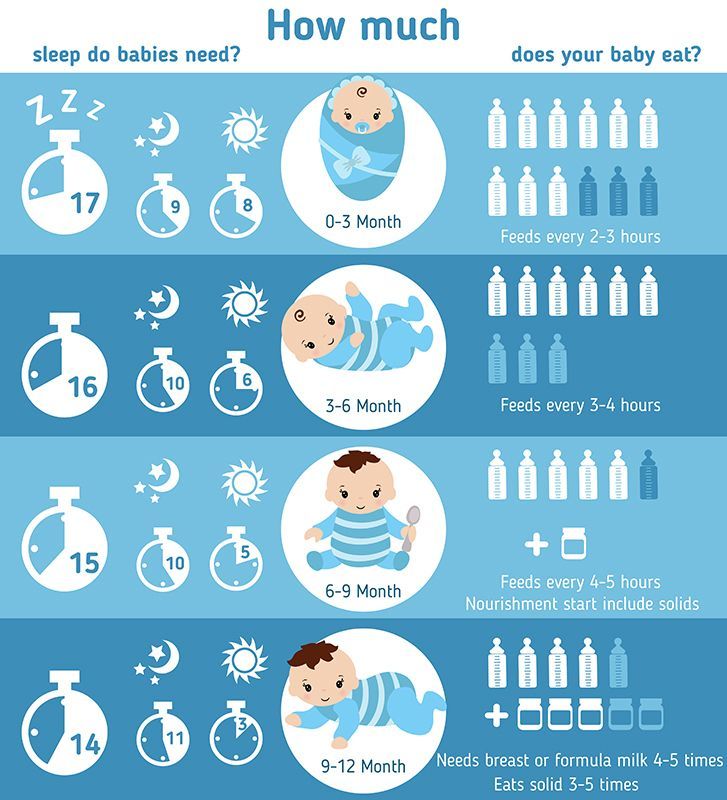 Try changing the milk temperature.
Try changing the milk temperature.
If the baby still does not want to take the bottle, check if the milk in the bottle is too hot or too cold. Before feeding, put some warm breast milk on the inside of your wrist to check the temperature. Milk should be warm, but if it seemed hot to you, just place the bottle for a short while under a stream of cold water. nine0003
Selecting the right bottle for your baby If you plan to combine bottle feeding with breastfeeding, it is advisable to choose bottles with a nipple that will have a wide base as the bottle's grip will be closer to the breast's. Also pay attention to the fact that the nipple is elastic and flexible, the child must make an effort to drink from the bottle, as well as from the breast. Give preference to nipples with an anti-colic valve that vents air out of the bottle. nine0003
Natural bottle allows you to combine breast and bottle feeding. 83.3% of babies switch from a Natural bottle to breastfeeding and back.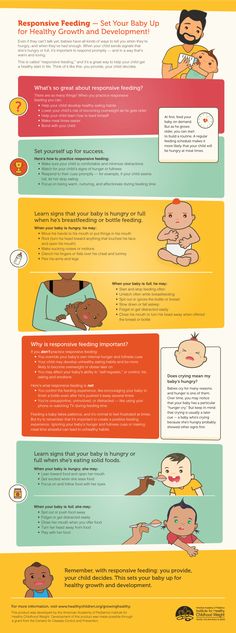 *
*
If you choose a bottle for artificial feeding, traditional bottles are fine, but it is desirable that the nipple is made of a hypoallergenic material, such as silicone, has an anti-colic valve and did not stick together when bottle fed. In case your baby spit up often, then use special bottles with anti-colic and anti-reflux valve, which reduces the risk of spitting up and colic.
Bottle with unique AirFree valve reduces the risk of colic, gas and spitting up. With this bottle, you can feed your baby in an upright or semi-upright position to reduce spitting up. Due to the fact that the nipple is filled with milk and not air during feeding, the baby does not swallow air, which means that feeding will be more comfortable.
Both bottles are indispensable if you want to breastfeed, bottle feed or just bottle feed your baby. nine0003
“My baby refuses to breastfeed but bottle feeds – help!”
Sometimes a baby gets used to bottle feeding and refuses to breastfeed.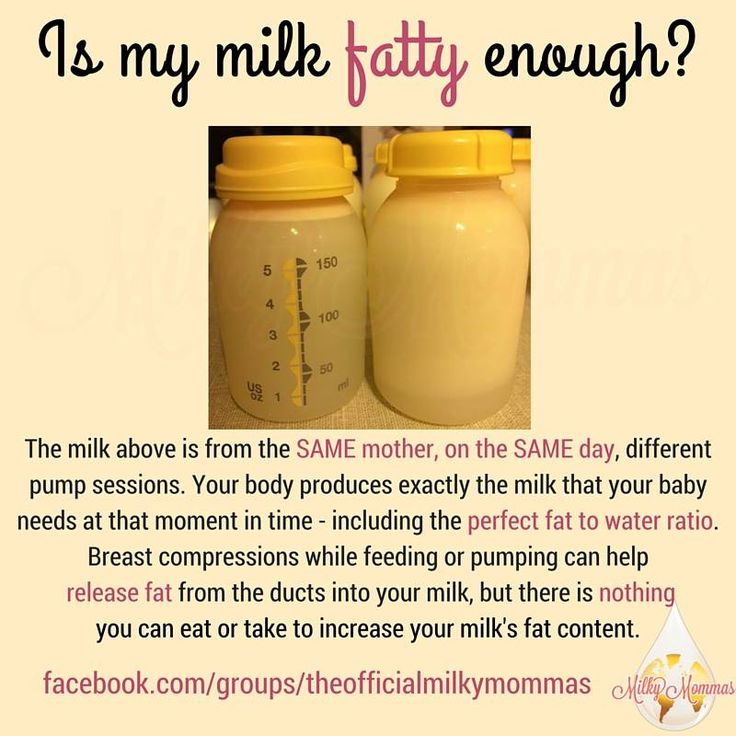 Therefore, it is important to use bottles that are suitable for combining breastfeeding with bottle feeding. If, nevertheless, you are faced with the fact that the child refuses to take the breast, try using silicone nipple covers to make the transition from the bottle to the breast and back more imperceptible. nine0013
Therefore, it is important to use bottles that are suitable for combining breastfeeding with bottle feeding. If, nevertheless, you are faced with the fact that the child refuses to take the breast, try using silicone nipple covers to make the transition from the bottle to the breast and back more imperceptible. nine0013
Remember that if you want to combine breastfeeding and bottle feeding, it is worth waiting at least a month before offering a bottle, so that you are lactating and have time to get used to each other and develop a breastfeeding regimen.
Breastfeed and bottle feed your baby with pleasure
Remember that it takes a while for your baby to get used to bottle feeding. This is completely normal. If you have to go to work, be sure to set aside enough time to bottle train your baby beforehand. nine0013
Remember that every child is different, so what works for one may not work for another. With a little time and patience, you will find out what works best for your baby when he refuses a bottle.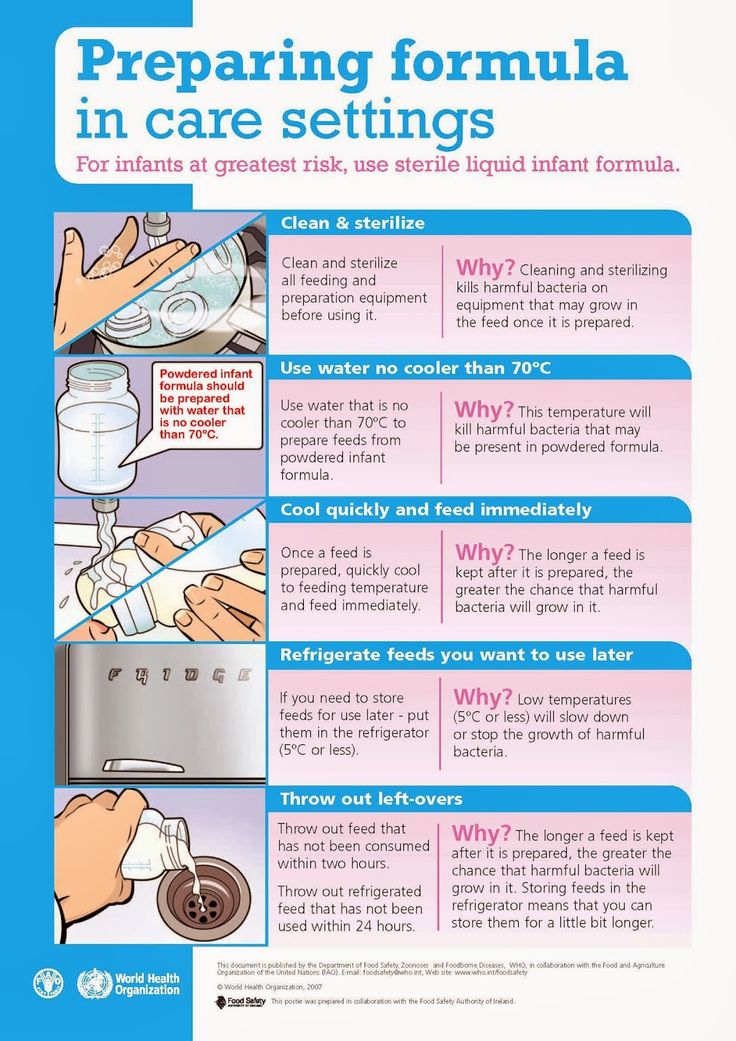
You will identify your child's unique needs. However, if your baby still refuses the bottle after all the steps above, check with your pediatrician.
Articles and tips from Philips Avent
References:
*O.L. Lukoyanova, T.E. Borovik, I.A. Belyaeva, G.V. Yatsyk; NTsZD RAMS; 1st Moscow State Medical University THEM. Sechenova, "The use of modern technological methods to maintain successful breastfeeding", RF, 02.10.2012 3 llli.org - The Baby Who Doesn't Nurse
llli.org - Introducing a Bottle to a Breastfed Baby
Baby+ app
Download the app and track your child's development and growth with trackers and save those special moments forever.
Download app:
You are leaving the Philips Healthcare (“Philips”) official website. Any links to third party websites that may be included on this site are provided solely as a convenience to you. Philips makes no warranties regarding any third party websites or the information they contain. nine0003
nine0003
I understand
You are about to visit a Philips global content page
Continue
You are about to visit the Philips USA website.
I understand
We find out and eliminate the causes of the child's crying. Baby cries after formula feeding - causes
Many mothers face a serious problem - after formula feeding, the baby begins to cry.
Infant crying is always a cry for help, and in order to provide it, it is important to understand the reasons for such behavior of the baby. nine0003
Variants of reasons why a newborn cries after formula feeding
All causes of children crying after feeding can be divided into three groups:
- Physical disturbances, such as dirty diapers, bright lights, being overheated or cold.
- Physiological discomfort, this group includes colic, otitis media, thrush and others.
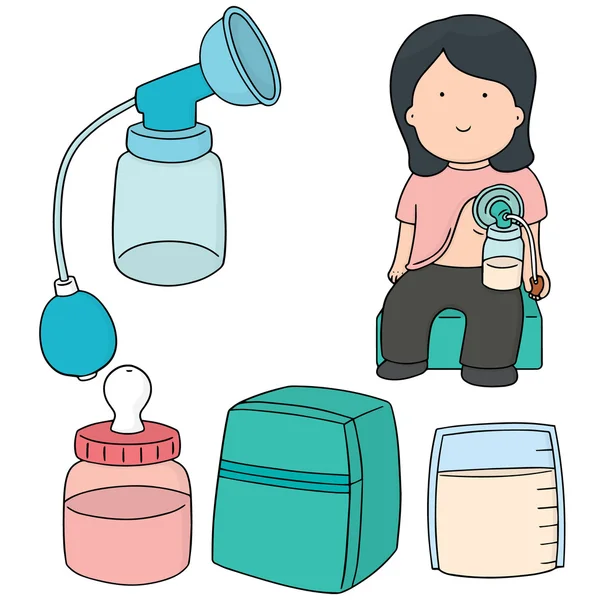
- Psychological discomfort is the lack of mother's attention, the need for closer contact with her. nine0036
Let's analyze all the reasons in more detail
1. The most common cause of crying in babies after feeding in the first months is colic , namely the accumulation of gases. In addition to screaming, the baby begins to tighten his legs, close his eyes.
Colic occurs in most children between 0 and 3 months of age. Parents will have to be patient, as there is no universal cure for them. The doctor may prescribe drugs, it is also recommended to massage, apply a warm diaper to the tummy. nine0003
2. It is important to pay attention to how the baby eats. If he swallows air , most likely, after eating, he will also cry, because then an air bubble forms in the stomach and causes serious discomfort to the baby.
3. Another common cause is too much appetite, that is, the baby swallows a lot of milk, which causes a gag reflex. The child gets scared and starts crying. In such a situation, you need to calm the baby and only then continue feeding. nine0003
The child gets scared and starts crying. In such a situation, you need to calm the baby and only then continue feeding. nine0003
4. When feeding with mixtures, it is not uncommon for mothers to overfeed their children. When overeating, stomach pains occur, and the baby tries to communicate them to parents by crying. Of course, all children are different, but in general, recommendations for the amount of mixture for babies of the same age are the same. Check with your pediatrician to see if your child is overeating.
5. The reason to see a doctor is crying with an attempt by the baby to scratch the ear or touch it. Most likely, eating provokes an exacerbation of pain in a child with otitis media - inflammation of the ear. In such a situation, you can not do without the help of an otolaryngologist. nine0003
6. If you notice a white coating in your baby's mouth, it's thrush. After eating, it worsens and causes discomfort in the child. A doctor will help get rid of it, but for now you can feed the baby from a spoon.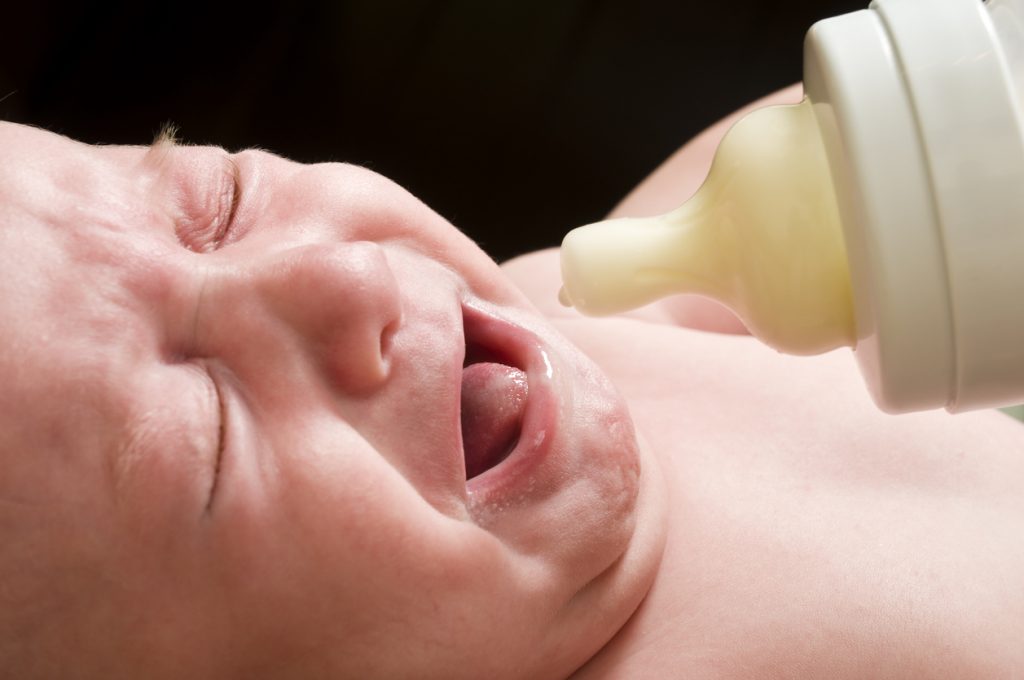
In the case of infant formula, the reason for this is that the bottle is not properly held. It should be at an angle to the baby so that the nipple is completely filled with the mixture and the baby does not swallow air.
If the hole in the nipple is large, replace it with one with a smaller hole so that the baby does not choke. nine0003
Serious reasons to see a specialist include the following reasons for crying:
- diseases of the digestive tract,
- intestinal infections (accompanied by loose stools, fever, vomiting),
- migraine with increased intracranial pressure (with migraine, the child often behaves in the same way as with colic).
Unfortunately, it will be difficult for parents to recognize these diseases without the help of a doctor, so do not be too lazy to take the necessary tests at the clinic and consult with specialized specialists. nine0003
- Before and after feeding, lay the baby on his stomach for a few minutes, and after feeding, hold the “column” of the stomach towards you so that he burps the excess air.
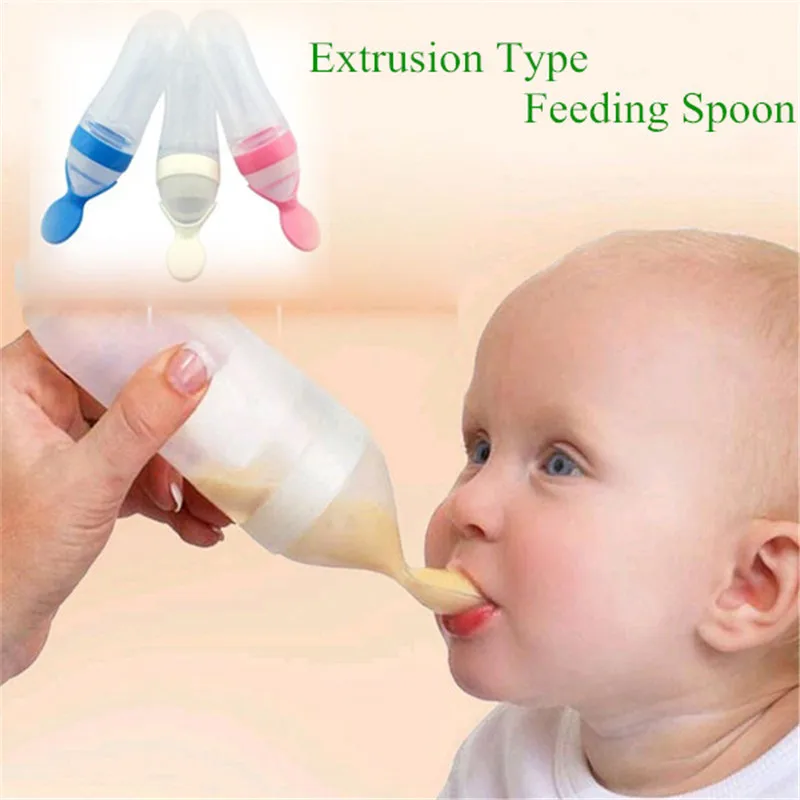
- Ask your doctor if you can change the formula. Often this helps solve the problem.
- Use quality formulas that have not expired, and bottles and teats from reputable brands.
Remember that all difficulties are temporary, and careful attention to your child will certainly help to overcome them. nine0003
The long-awaited meeting of mother and baby took place, everything seemed to go as it should. But why is the baby crying? A new mother is not always clear. Only after some time, the mother will be able to understand her baby by intonation, duration of crying and other criteria. Already in the second week, you can notice that in each situation the newborn cries differently.
Very important Causes He cries a lot
miracle hiccups
Newborn Baby suffers from hiccups
There are a great many reasons for crying. Here are just the most basic of them, which are not related to the health problems of the baby:
- hungry;
- wet diaper, diaper, clothes;
- awkwardly positioned, tight clothing or seams;
- cold or hot;
- has diaper rash on the skin;
- tired, sleepy;
- wants to chat;
- scared when peeing or pooping - incomprehensible process;
- they put him to bed, but he does not want to sleep;
- just like that - to attract attention.
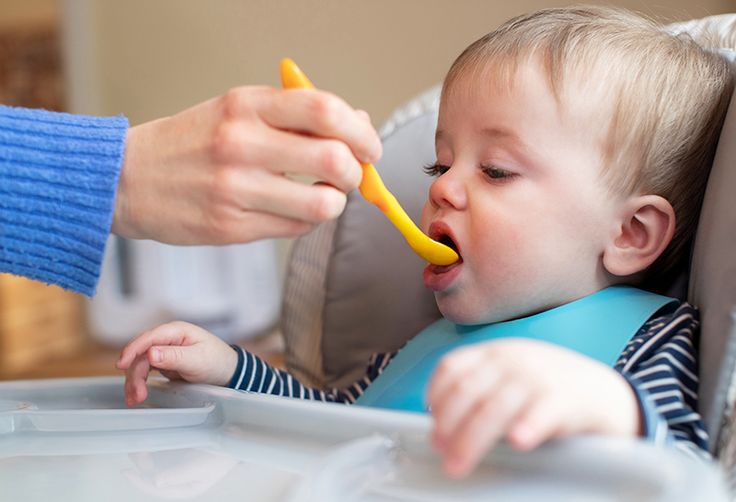
It is very important to determine the cause of crying
The following table will clearly show why a newborn is crying and how a mother or a nanny can help him. Here are the most common causes and their main symptoms.
| Reason for crying | Symptoms | Help |
| The baby is hungry | Such crying is accompanied by a prolonged cry, while the child may blush, usually pulls his hands to his mother | Feed, caress |
| Wet diaper or diaper nine0283 | The baby is whimpering, sometimes louder, sometimes weaker, continuous whimpering. May have hiccups | Change the diaper, change into dry clothes, warm on the handles |
| Uncomfortable position | Such crying begins with a whimper, then the child begins to scream, waving his arms and legs, trying to move into a more comfortable position | If the baby is in a diaper, re-swaddle.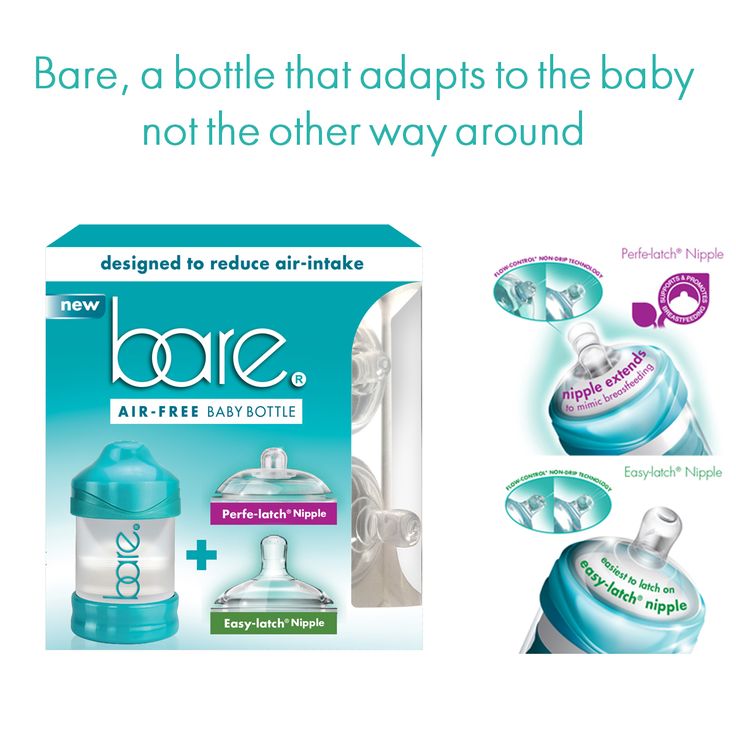 At first, you can try just to change his position At first, you can try just to change his position |
| The child is hot | The child whimpers, the skin may be slightly reddened, a rash may appear. The baby is trying to get rid of diapers or clothes | Remove one layer of clothing, take off the cap, in hot weather, wipe with a wet diaper |
| The child is cold | The newborn in this case cries piercingly with gradual calming, hiccups may appear at the end. Another sign is that the skin of the abdomen, chest or back is cool. | Dress warmly, cover with a blanket nine0283 |
| Newborn cries a lot during feeding (otitis media, inflammation of the oral mucosa, stuffy nose) | Eagerly swallows the nipple, immediately begins to cry sharply, throws his head back | For all three reasons, a doctor is called. And nasal congestion is removed with the help of a “pear”, then you can continue feeding. |
| Newborn cries a lot after feeding | Curls legs to tummy, frowns forehead, frowns, cries plaintively nine0283 | First, you need to check if the baby is properly attached to the breast.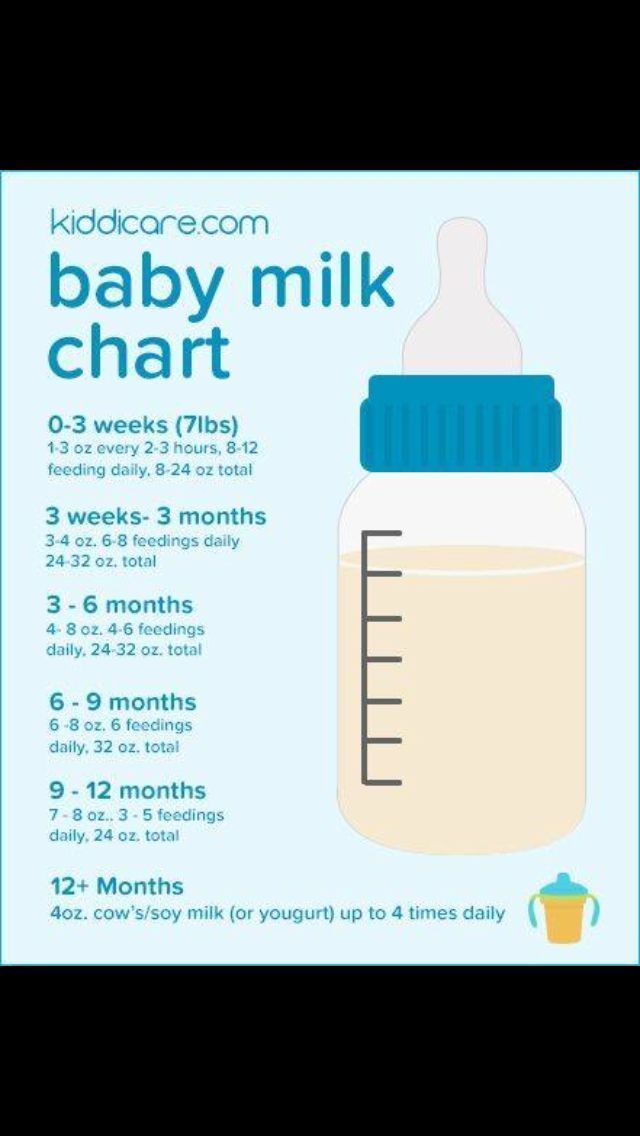 Does it involve the entire areola of the nipple or just the nipple? When he eats, no strong smacking should be heard. Secondly, after each feeding, you need to vilify him with a “column” for 15-20 minutes. Does it involve the entire areola of the nipple or just the nipple? When he eats, no strong smacking should be heard. Secondly, after each feeding, you need to vilify him with a “column” for 15-20 minutes. |
| Newborn cries from intestinal colic | Accompanied by a very high-pitched scream with breaks of 5-20 minutes. | Warm up your baby's tummy by placing it against your own tummy or by placing it on a heating pad. You can fold it several times, iron the baby diaper and also attach it to the baby's tummy. After feeding, the baby is given to drink dill water or special children's preparations that can be bought at the pharmacy nine0283 |
| Diaper rash on the skin | Redness, sores, peeling in the groin or on the buttocks | Treat with special agents (oil, powder, cream). Change your diaper or diaper more often |
| Newborn cries before going to pee | Calms down a little, as if listening, and immediately begins to cry | Call a doctor |
| When pooping | Defecation accompanied by intense reddening of the face along with loud crying nine0283 | Give water during the day if the child is formula- or formula-fed Constipation can be helped by irritating the child's anus with the sharp tip of a thermometer lubricated with sunflower oil.  You can enter a maximum of 1 cm! You can enter a maximum of 1 cm! |
| The kid is just tired | This is more like whimpering than crying | shake, put to sleep |
| teething | Drooling. Bites fingers, refuses to breastfeed, appetite disappears, sleep is disturbed nine0283 | Gently massage gums, chew cold teether, lubricate with special ointments for gums |
| Wants to chat | Then the newborn does not cry all the time, but as soon as the mother disappears from sight, and immediately calms down when she appears | Pick up, sing a song |
| Does not want to sleep | Naughty, gets out of the diaper | Undress, let a little walk |
| Excitable nervous system | Crying for no reason | Remove loud sound, bright objects, walk outside more often. Contact a neurologist |
Do you suffer from colic?
Colic is one of the main causes of children's crying.
There is still no definite opinion why they occur in a child. What it is: gas formation in the digestive system or the baby simply cannot control his emotions, maybe he is overly sensitive to everything around him. nine0003
The main sign of colic is that the newborn is pushing and then crying. Crying continues continuously, for a very long time for no apparent reason. This anxiety begins mainly in the afternoon, it lasts until the evening, but it may well be around the clock. Therefore, speaking about why a newborn baby is constantly crying, we can safely assume that the reason is intestinal colic.
Outward signs show that:
- the baby presses his knees to his tummy; nine0036
- its cams are compressed;
- he starts to get very active.
The child's eating and sleep are disturbed, it is no longer about how to calm the awake baby, the newborn is already crying in his sleep. It happens that he wakes up, looking for a breast only to refuse it with tears as soon as he starts to eat. And when he falls asleep, he wakes up with even louder cries.
And when he falls asleep, he wakes up with even louder cries.
This painful period begins when the crying of a newborn occurs with or without reason at about 2-3 weeks of life and lasts up to 2-3 months. By the end of this period, the crying gradually disappears, everything miraculously calms down, a calm life begins. nine0003
When to see a doctor?
Very often on women's forums, mothers are interested in why their newborn baby cries during urination. Of course, there may not be a problem - often crying during this process is due to the child's fear of everything new and unknown. But the cause can be much more serious things:
- infectious diseases of the genitourinary system;
- incorrect location of the foreskin.
The reasons for the baby can be completely different
In one situation or another, you need to see a doctor, who will probably send you to take urine and blood tests, and only then will make a diagnosis.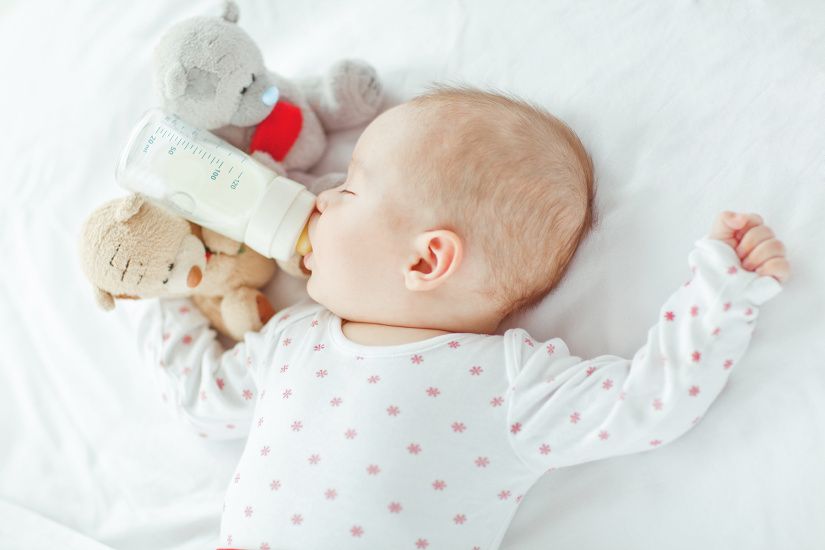
You should also call your doctor if your newborn pushes and then yells. Perhaps he suffers from constipation and gas formation, and the doctor will help you choose a diet for mom, or baby food for a child. Be sure to pay attention to the baby's stool and compare it with the food he eats.
Symptoms of flatulence, along with loose or sour stools, lasting for several days, are a serious reason to consult a pediatrician. nine0003
Why not ignore?
How many child psychologists in the world, so many opinions about causeless crying in children and methods of dealing with it. It would be best to figure out why the newborn is restless while playing or sleeping, while eating or walking.
Our grandmothers were advised not to approach a crying child for 20 minutes, so that he would cry. Today's pediatricians are convinced that when a child cries, a stress hormone is produced that has a detrimental effect on his brain. Scientists in this field tested the saliva of a crying child and found in it a large amount of the hormone cortisol, which is very dangerous for the baby's fragile brain. Nature considered crying as a natural way for a child to draw attention to himself during that period of his life, when he still does not know how to speak. nine0003
Nature considered crying as a natural way for a child to draw attention to himself during that period of his life, when he still does not know how to speak. nine0003
Crying loudly after feeding
If the world around the child is so cruel that no one pays attention to crying, then the baby will soon completely stop using this natural method. In the near future, the parents of such a baby will not think about how to calm their newborn when he cries, but about how to rid him of fears, because they will haunt the baby from everywhere.
It is quite common for a newborn to cry while waiting for feeding, letting the mother know that he is hungry. Usually, after feeding, the baby peacefully falls asleep right at the breast, and the mother has a minute to take care of herself. Therefore, a child who starts crying after eating is alarming for parents. Let's figure out why the baby cries after feeding, what causes crying and what parents should do in this case. nine0003
Of course, the baby cries not just for nothing, but because something is bothering him. If the mother cannot independently find out the cause of crying, and even more so if the situation repeats itself many times, she has to turn to a pediatrician for help. But the doctor, having observed the baby for a rather short period of time, will not always be able to establish the true cause of crying. Of course, an experienced doctor will try to immediately eliminate the most likely causes of anxiety, but this is not always possible. In this case, the parents themselves will have to observe the baby and determine the cause of crying. nine0003
If the mother cannot independently find out the cause of crying, and even more so if the situation repeats itself many times, she has to turn to a pediatrician for help. But the doctor, having observed the baby for a rather short period of time, will not always be able to establish the true cause of crying. Of course, an experienced doctor will try to immediately eliminate the most likely causes of anxiety, but this is not always possible. In this case, the parents themselves will have to observe the baby and determine the cause of crying. nine0003
Common causes of crying in babies
If diapers are dry, there are no irritating factors for the baby, but after feeding the baby is still crying, then you should try to find out what is bothering him. The following are the most common causes that may cause anxiety in the crumbs. Mom should carefully observe the baby and find out what prevents him from enjoying the meal.
1. Intestinal colic. During the first months of a baby's life, as long as the work of the gastrointestinal system has not yet improved, he is often disturbed by colic.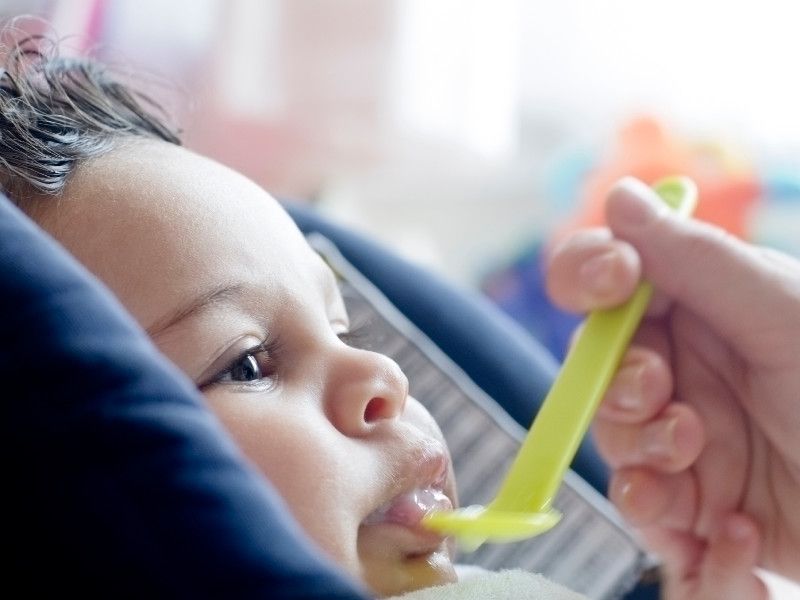 If the baby closes his eyes, often pulls his legs, then, most likely, he is tormented by gaziki. In this case, it is necessary after each feeding, and it is possible during it, to place the crumbs in an upright position and hold it for a while, making it possible for excess air to leave the stomach. Excessive gas formation can provoke a large amount of sugar in the mother's diet, which, getting into the baby's milk, enhances the fermentation processes. The doctor may recommend the use of drugs that enhance intestinal motility and relieve spasm. From the third week of life, you can give newborns fennel water. nine0003
If the baby closes his eyes, often pulls his legs, then, most likely, he is tormented by gaziki. In this case, it is necessary after each feeding, and it is possible during it, to place the crumbs in an upright position and hold it for a while, making it possible for excess air to leave the stomach. Excessive gas formation can provoke a large amount of sugar in the mother's diet, which, getting into the baby's milk, enhances the fermentation processes. The doctor may recommend the use of drugs that enhance intestinal motility and relieve spasm. From the third week of life, you can give newborns fennel water. nine0003
2. Feeling of hunger. The child may begin to act up if the milk in the breast has already ended, and the feeling of satiety has not yet come. If the baby is actively pulling on the nipple and is angry, then most likely he needs additional nutrition. In this case, you should give him a second breast if the baby is breastfed, or supplement with milk formula if he is artificial.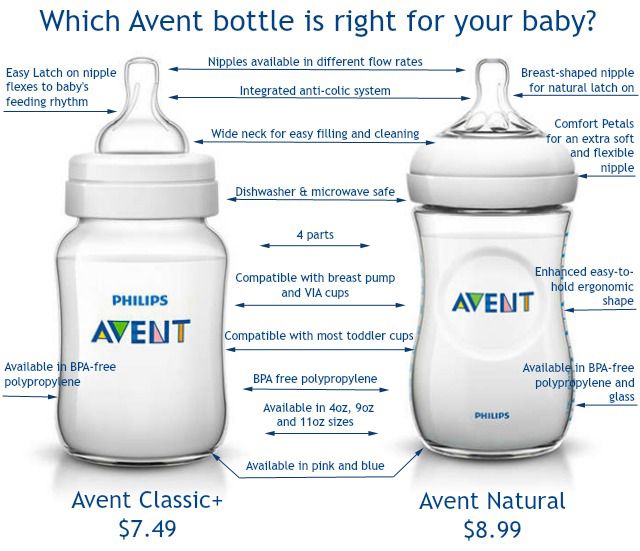
3. Overeating. There is an opinion that a child will never eat more than he needs. However, it is not. nine0003
Some babies cannot stop in time and continue to suck even when their stomach is full.
Formula-fed babies are especially prone to overeating. Therefore, it is very important when feeding such babies to adhere to the regimen and age norms. If, after reducing the portion of the child, the pain in the tummy ceases and the crying stops, then overeating was the cause of concern. When breastfeeding, it is difficult to control the amount of food, so the child should be removed when he begins to sluggishly draw milk. nine0003
4. Fright. If the baby, who had eaten, relaxed and almost fell asleep to frighten with a sharp sound, then most likely he will cry. See if your child is worried about extraneous sounds that you may be used to and do not pay attention to. In this case, you can stop crying by gently lulling the baby or motion sickness.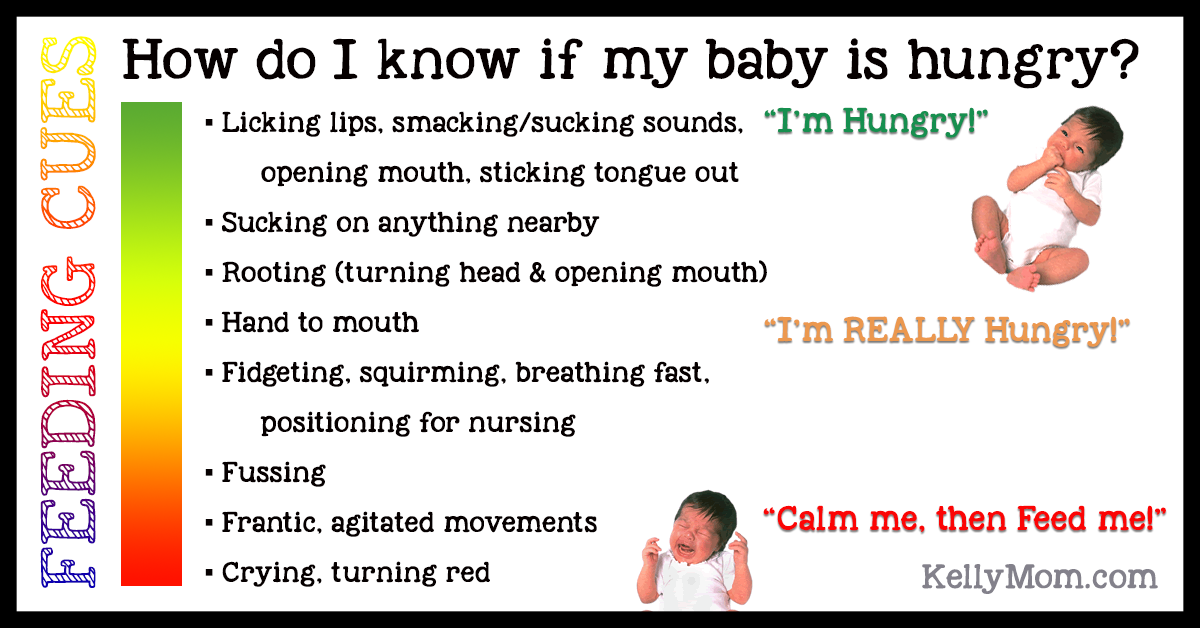
5. Inflammatory process in the oral cavity. Perhaps your baby is worried about stomatitis or thrush, which cause pain while sucking on a breast or nipple. If there is a white coating in the baby's mouth, you should consult a doctor. In this case, he usually advises feeding the child with a small spoon so as not to irritate the mucous membrane once again, and prescribes treatment. nine0003
6. Inflammation in the middle ear. If, during or after feeding, the baby touches the ear, and after touching it cries from pain, then most likely it is an inflammation of the ear. During eating, the pain becomes stronger, as during swallowing the pressure on the middle ear increases. When you press the ear or pull back the auricle, the pain sensation sharply increases, the body temperature often rises. If a mother suspects an ear infection in a baby, you should urgently consult a doctor, as this disease is very dangerous for young children and causes very severe pain. You can slightly reduce the pain by applying a heated diaper to the ear and laying the child on the same side from which the ear hurts.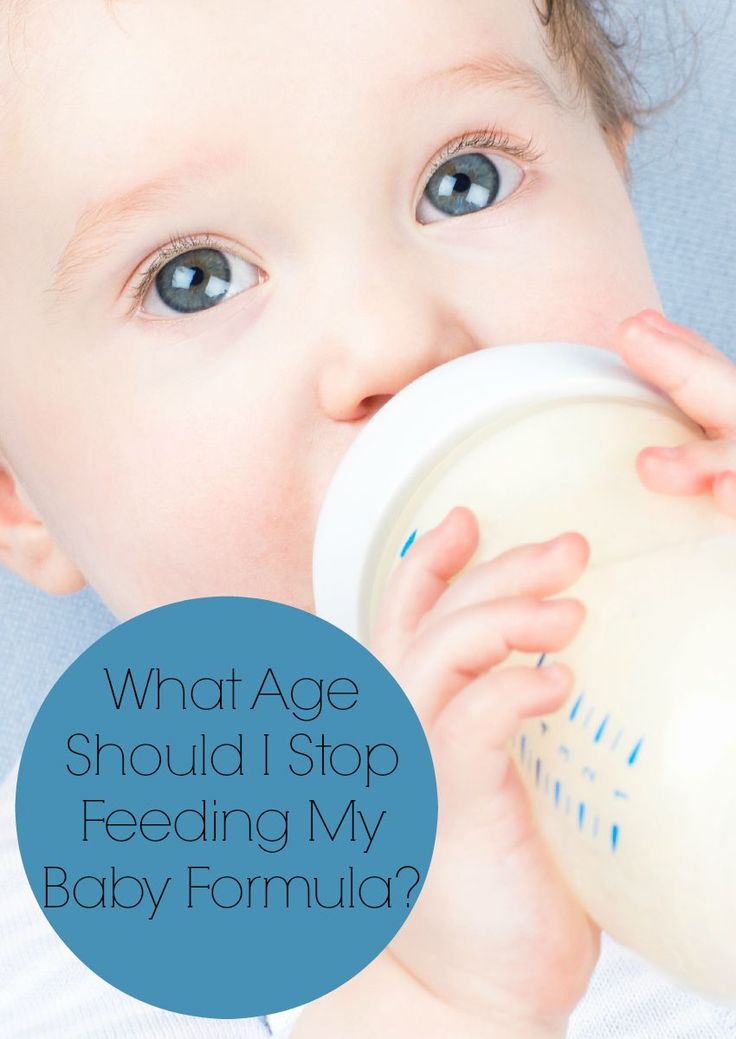 The doctor, having confirmed the diagnosis, will immediately prescribe drops and, possibly, antibiotics. nine0003
The doctor, having confirmed the diagnosis, will immediately prescribe drops and, possibly, antibiotics. nine0003
Feeding system for children over 6 months
7. Heat, cold, fatigue. Check if the baby is cold, if she is hot. Maybe the baby is naughty due to overwork.
We looked at the most common causes of crying in babies after or during feeding. It is possible that something else is bothering your baby, try to determine the cause as soon as possible. After all, who can better understand a newborn than his loving, caring mother.
nine0184Newborn babies immediately after their appearance in this world make their first cry. If a child cries, this means that all physiological processes are occurring correctly. Babies often cry in order to attract the attention of adults, there are different types of crying, which actually depend on the very reason, that is, the problem that the baby's parents must solve.
This is a normal process, because a baby cannot talk, and with a close relationship between mother and baby, the mother will always understand what is happening with the baby, what he asks. If the baby cries after feeding, then it is important to determine the type of crying and take appropriate measures in a timely manner. nine0003
If the baby cries after feeding, then it is important to determine the type of crying and take appropriate measures in a timely manner. nine0003
Types of crying
Of course, crying can be due to anything, but experts, depending on the cause, distinguish these types:
- Hungry crying;
- When a child is in pain;
- Feeling of discomfort - this happens if the child is uncomfortable lying or has wet diapers, his leg itches, the diaper is uncomfortable and other reasons;
- The kid is frightened or afraid of something;
- Whims - this is when a child wants to be scolded on the handles or paid attention to him. nine0036
How to understand what is the reason?
They say that you can recognize why a baby is crying by the sound, caring mothers acquire this ability over time. It is also important to know when the baby is crying, what preceded the crying. If the baby cries when he is worried about the feeling of hunger, then most likely he will not calm down and the mother can understand this in time.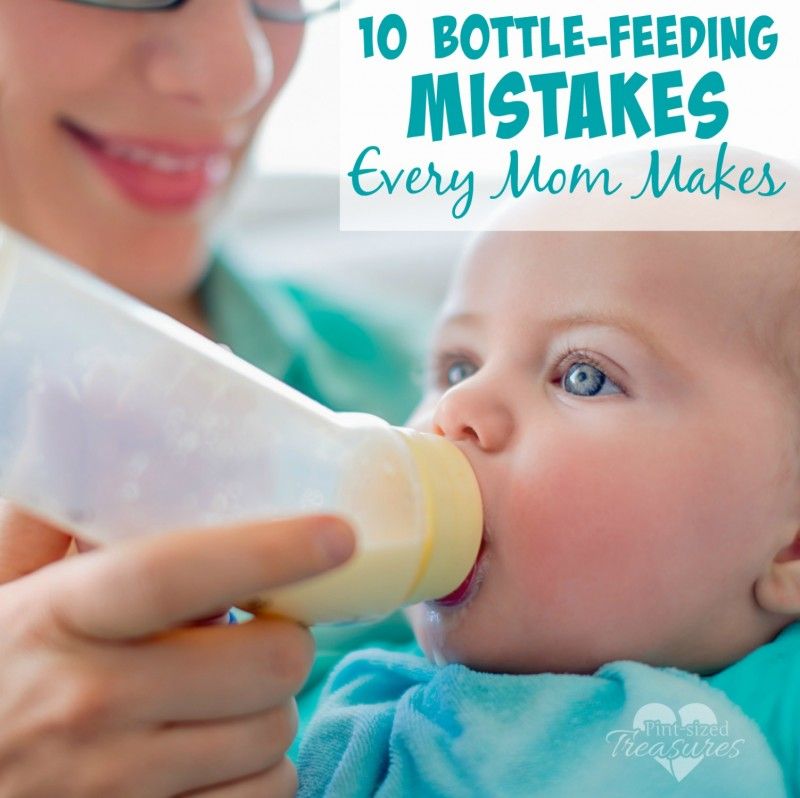 If feeding is done on time, then it is normal when the baby cries 3 to 4 hours after feeding. This is not even crying, but a call, he calls his mother to feed him. As a rule, newborn babies and babies up to 2-3 months behave very calmly and it is easy to understand what caused their discontent . nine0003
If feeding is done on time, then it is normal when the baby cries 3 to 4 hours after feeding. This is not even crying, but a call, he calls his mother to feed him. As a rule, newborn babies and babies up to 2-3 months behave very calmly and it is easy to understand what caused their discontent . nine0003
How does the child behave when crying?
It is very important to monitor your baby's behavior when he is crying. This can help loved ones understand his signals. So, for example, if the baby cries after feeding, you should follow what he is doing. He can:
- Press the legs to the tummy;
- Unscrew, turn over;
- Crying may increase or be quieter;
- By the facial expressions of the baby, one can understand that something hurts him - he frowns every now and then, offended. nine0036
All of these signals may indicate that the baby has a tummy ache. The reason is very simple - gaziki in the ventricle, which cause "colic". Every young mother is familiar with this problem, just not everyone constantly faces it.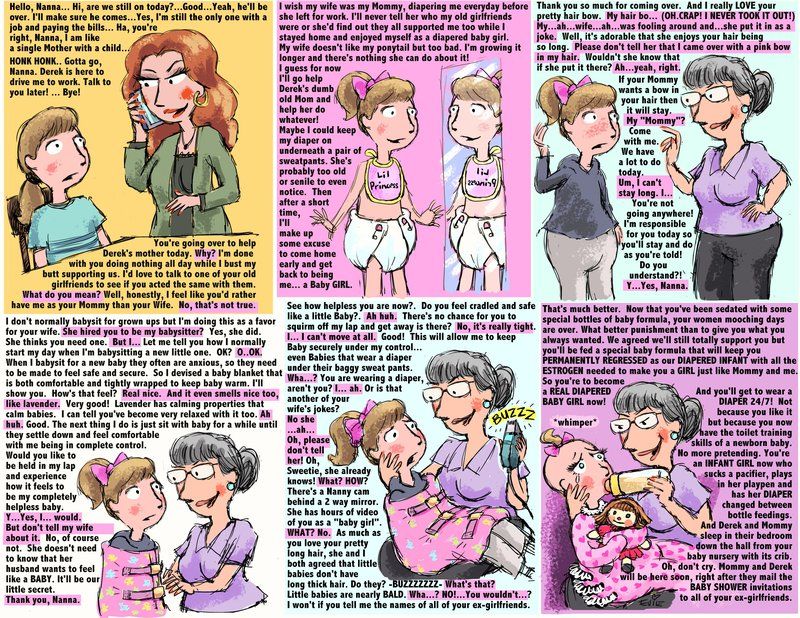 Often occurs due to the fact that when the baby eats, he can swallow air . The reason for this may be the ignorance or inability of the mother to feed the child so that he does not smack. Almost every infant has cried after feeding for this reason. nine0003
Often occurs due to the fact that when the baby eats, he can swallow air . The reason for this may be the ignorance or inability of the mother to feed the child so that he does not smack. Almost every infant has cried after feeding for this reason. nine0003
What should parents do if they want to help their baby?
If young parents know how to eliminate this pathology, then very quickly they will do everything to help. To do this, you can and should purchase a special remedy for colic for newborns at the pharmacy. The most famous "Espumizan" or "Kolikid" can be noted. These medications are safe for the child and instantly eliminate the cause of colic. It is worth noting that these are not the only means, you can find less "advertised", not inferior in quality, but at a much cheaper price. nine0003
Parents' behavior also requires some adjustment, there are some special actions that can help the baby, relieve him of pain. What to do?
- Do not rush to put the baby to bed immediately after feeding, it is better to walk with him for several minutes without pressing the tummy.

- You can iron the diaper to keep it warm and put your baby on it with your tummy, or you can lean your baby's tummy against your body. The child will feel warm and it will be much easier for him to endure this pain. nine0036
- Give your baby a tummy massage - counterclockwise in the navel area with light massage strokes.
- A more drastic measure is the chamomile enema, it is not recommended to do this very often, only when nothing can calm the baby.
A young mother should also understand that overeating can be the cause of crying in a baby . This often happens in infants who are on a mixed form of feeding or completely artificial. Mom does not know the measure of the baby. And the child did not understand that he had already eaten. nine0003
Preventive measures
Parents who feel for the baby and take care of him constantly, can alleviate such conditions for him. The main preventive measure is the correct attachment of the baby to the breast .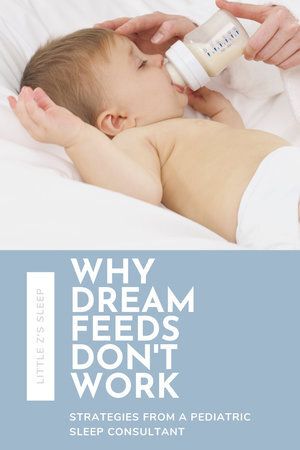 An infant should grasp the breast well so that air does not enter the tummy during feeding with milk.
An infant should grasp the breast well so that air does not enter the tummy during feeding with milk.
Make sure that the baby eats his norm, for each certain age there is an approximate norm for how much a child should eat. Also, the mother during lactation should adhere to a certain diet, since the introduction of new foods, especially legumes or cabbage, can cause increased gas formation in the baby. nine0003
All mothers often experience baby crying. Some children thus show that something is bothering them, others are trying to attract their mother's attention, because do not forget that in the first year of life, crying is the only way of communication that is available to babies. Often the baby cries after feeding and the reason for this can be various factors.
Colic
The most common reason a baby cries after eating is colic. Colic, or the accumulation of gas in the baby's tummy, is most common in the first three months of life. Why it happens? This phenomenon is observed for the reason that the digestive system of the child has not yet been fully formed. To ease the suffering of the child, after feeding it can be held upright. In this position, the little one gets the opportunity to burp the excess air that has entered the digestive tract along with milk. Recognizing colic is extremely simple. If the baby is worried about the accumulation of gas, then the following phenomena will be observed:
To ease the suffering of the child, after feeding it can be held upright. In this position, the little one gets the opportunity to burp the excess air that has entered the digestive tract along with milk. Recognizing colic is extremely simple. If the baby is worried about the accumulation of gas, then the following phenomena will be observed:
- shrill scream bordering on a screech;
- clenched handles;
- attempts by the baby to knock with his feet;
- frowning forehead and closed eyes;
- attempts to arch the body;
- tension in the whole body;
- short breath holdings.
Important baby to breast. In order for the child not to suffer from colic and so that he does not capture excess air with food, he must correctly take the breast or nipple when feeding with a mixture. Incorrect gripping of the breast or nipple can be the result of the inexperience of the mother or too high activity of the child, who, from hunger, eagerly and quickly tries to get enough.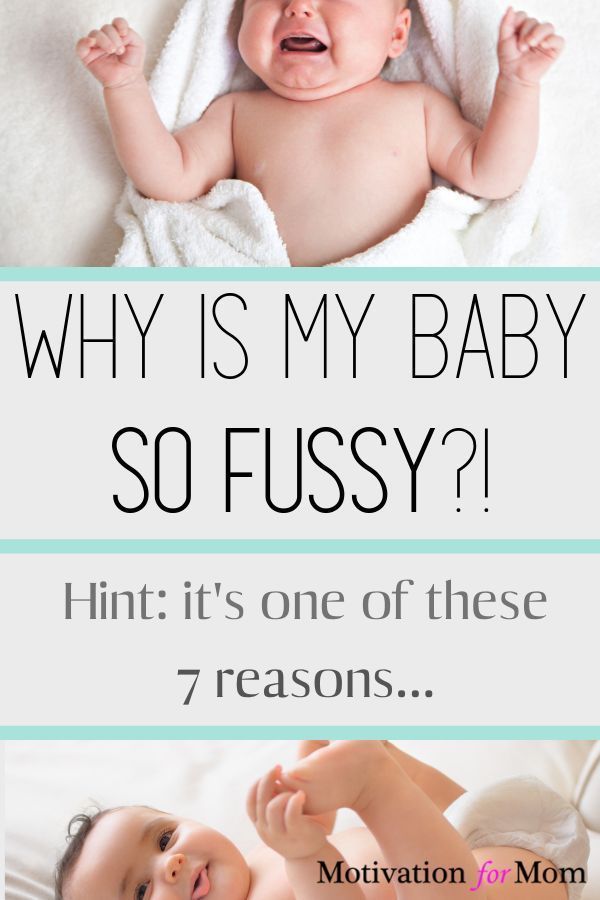 In this case, you can ask for advice from a pediatrician or breastfeeding consultant, who will tell you exactly how to breastfeed. In the case of artificial feeding, you can buy a special anti-colic nipple, which will prevent excess air from entering the stomach. nine0003
In this case, you can ask for advice from a pediatrician or breastfeeding consultant, who will tell you exactly how to breastfeed. In the case of artificial feeding, you can buy a special anti-colic nipple, which will prevent excess air from entering the stomach. nine0003
Svetlana, 31 years old: My daughter started crying a lot after breastfeeding at the age of 3 months. For a long time we could not understand the reason, it turned out to be colic. We were helped by the advice to carry the baby in her arms “tummy to tummy”, so that the belly of mom or dad would warm the baby’s belly. After some time of wearing such colic, my daughter passed and fell asleep.
Other causes of colic can also occur. For example, malnutrition of the mother. It is known that mothers who like to eat sweets before feeding are more likely to complain about the child's anxiety. Why can't you eat sweets? It must be understood that sweet only enhances all fermentation processes, so eating a piece of cake before breastfeeding will almost certainly lead to colic in the baby. nine0003
nine0003
Baby crying after feeding may also be caused by the fact that there were many distractions in the process. If loud music sounded somewhere nearby, a TV or other household appliances were on, children rustled and played, then the baby could be constantly distracted, constantly spitting out the chest and grabbing it again. In this case, the risk of incorrect capture is much greater. In addition, being distracted, the child could simply not get enough or, on the contrary, overeat.
Hunger
Baby cries after feeding not only because of colic. Another reason for the cry of a child after feeding can be hunger. Why? This can happen because there is not enough milk in the mother's breast. In this case, it is advisable to give a second breast or recalculate the nutritional rate with a mixture. nine0003
Overeating
However, do not overfeed your baby too much, as overeating is another reason why a baby cries after every meal. Many doctors assure that the child will eat exactly as much as he needs.

